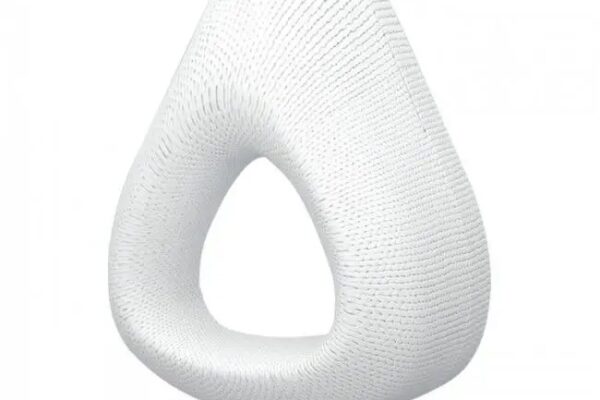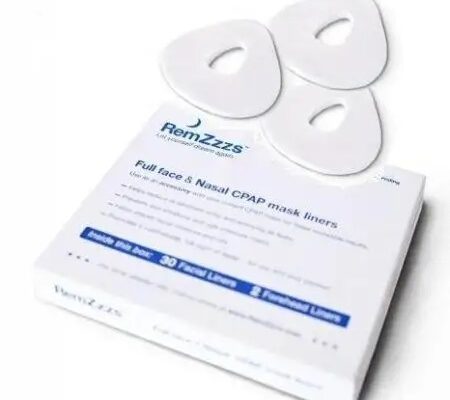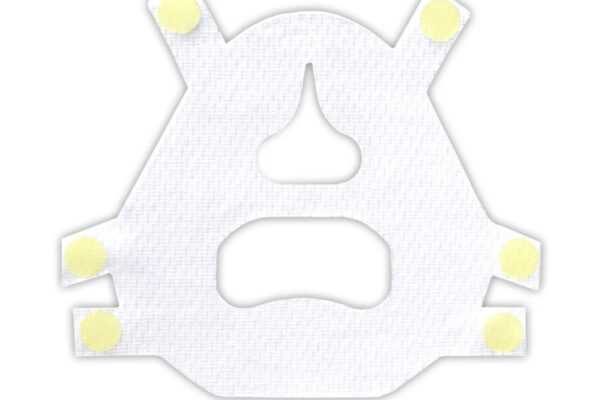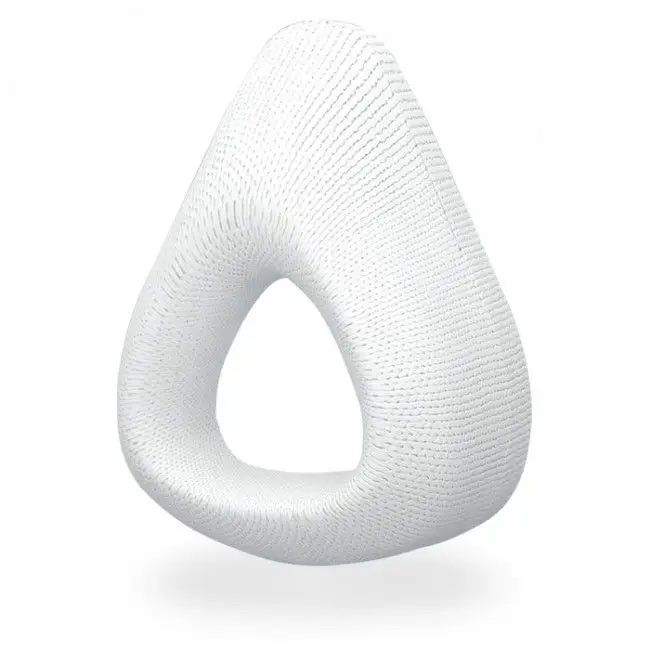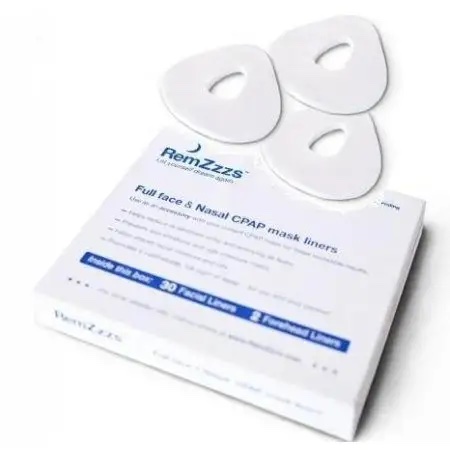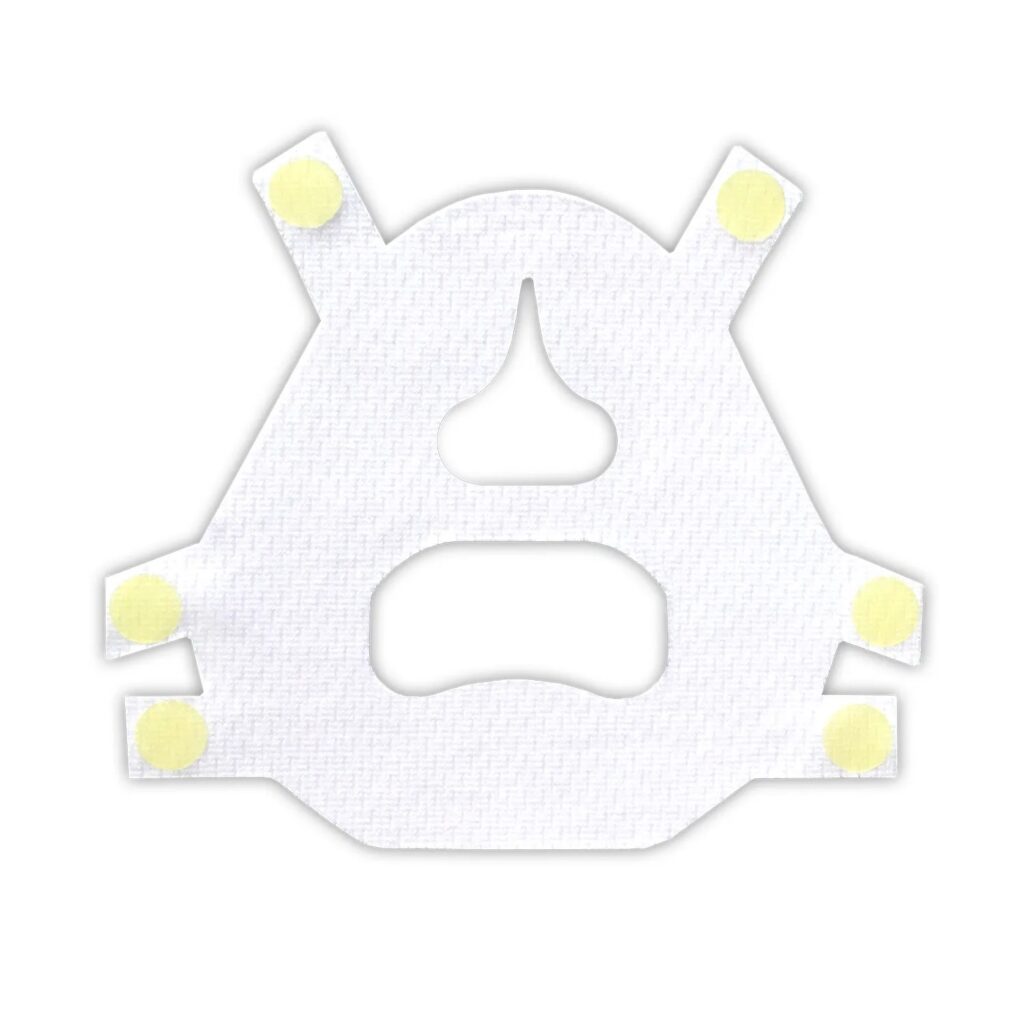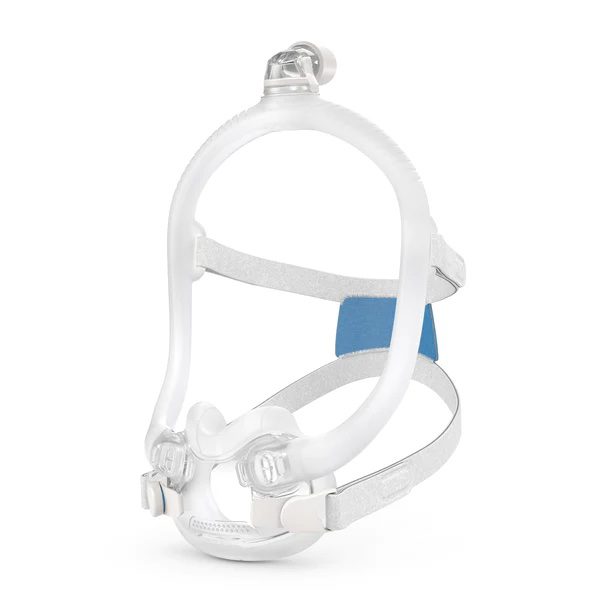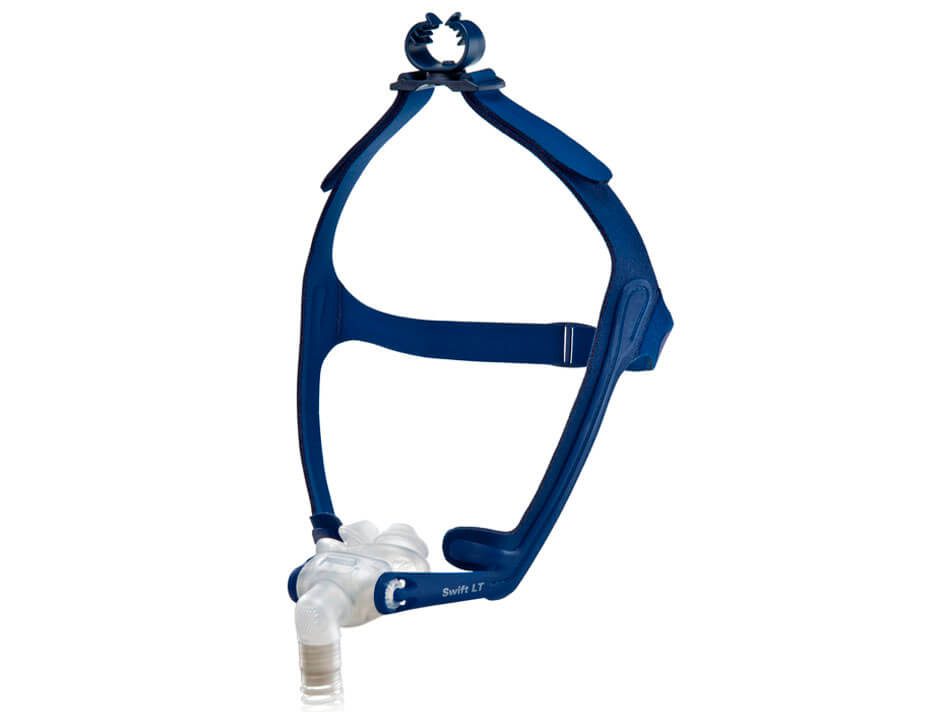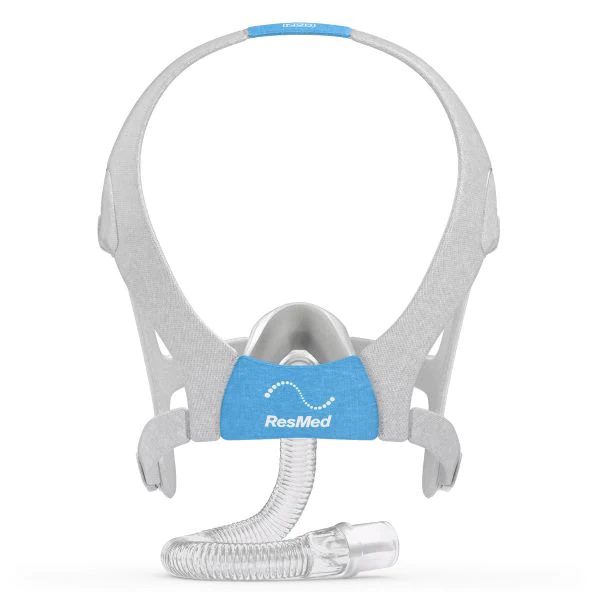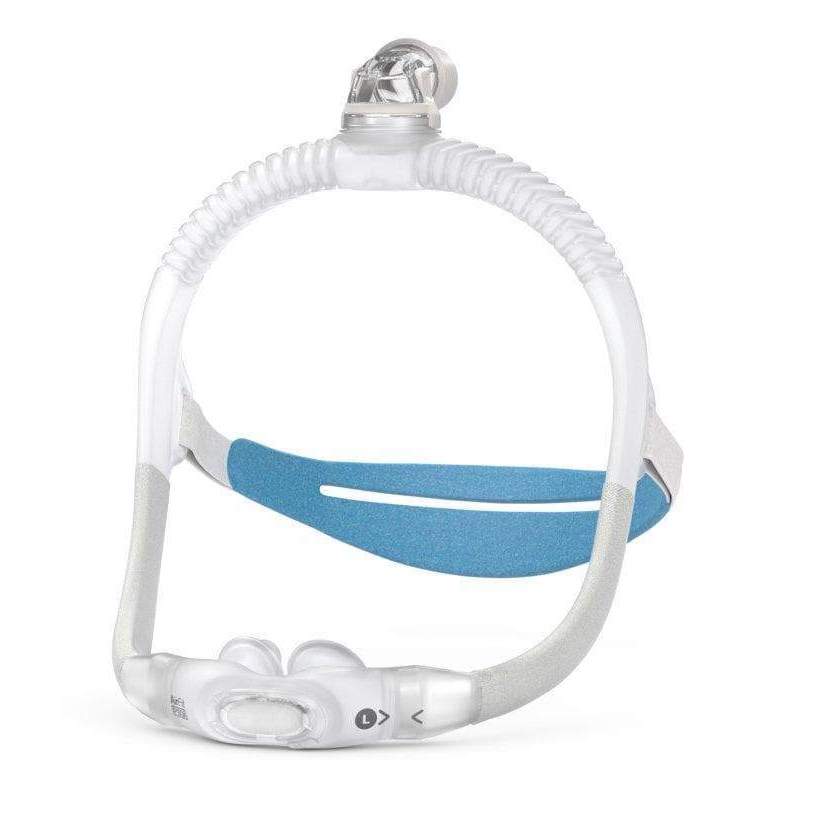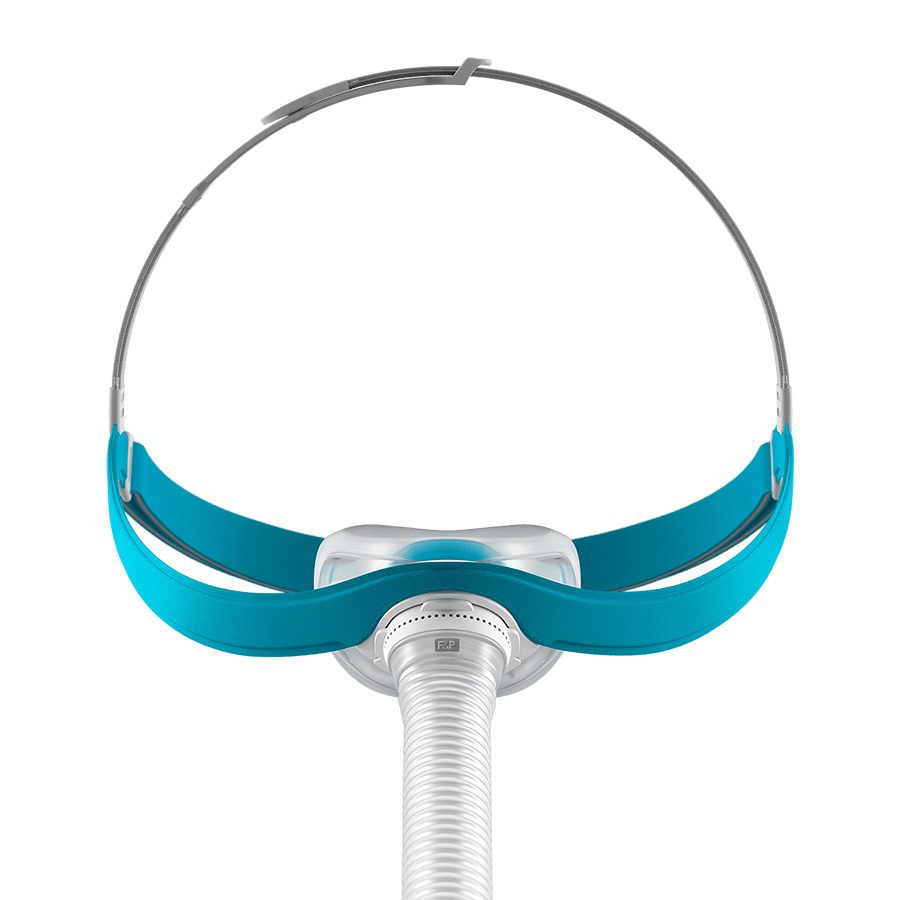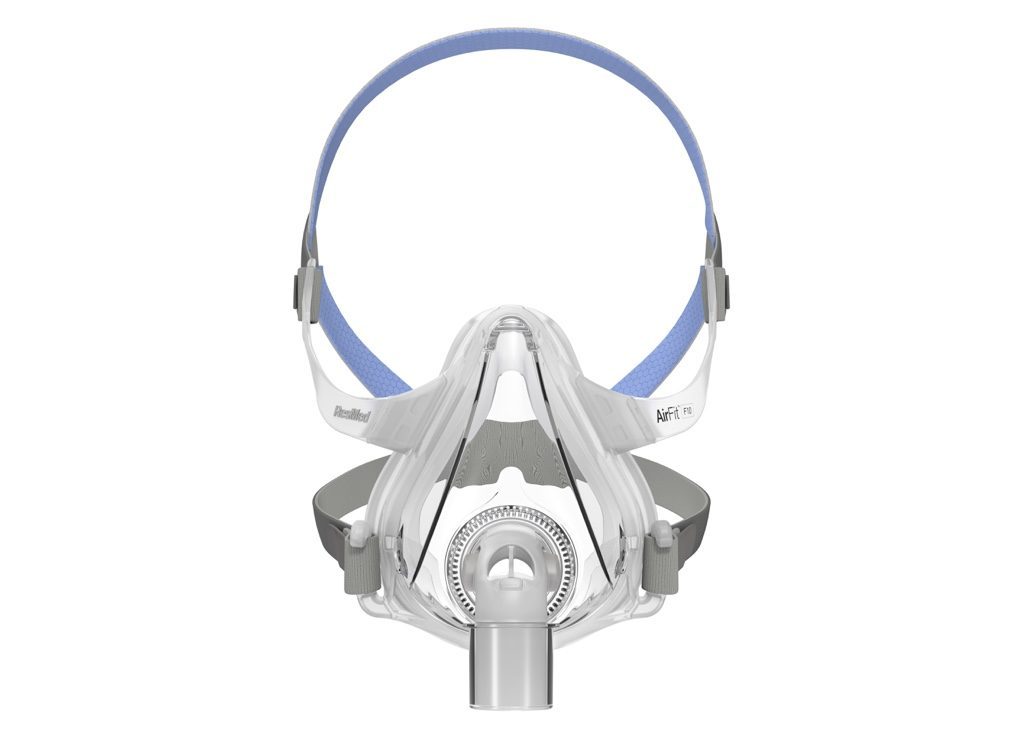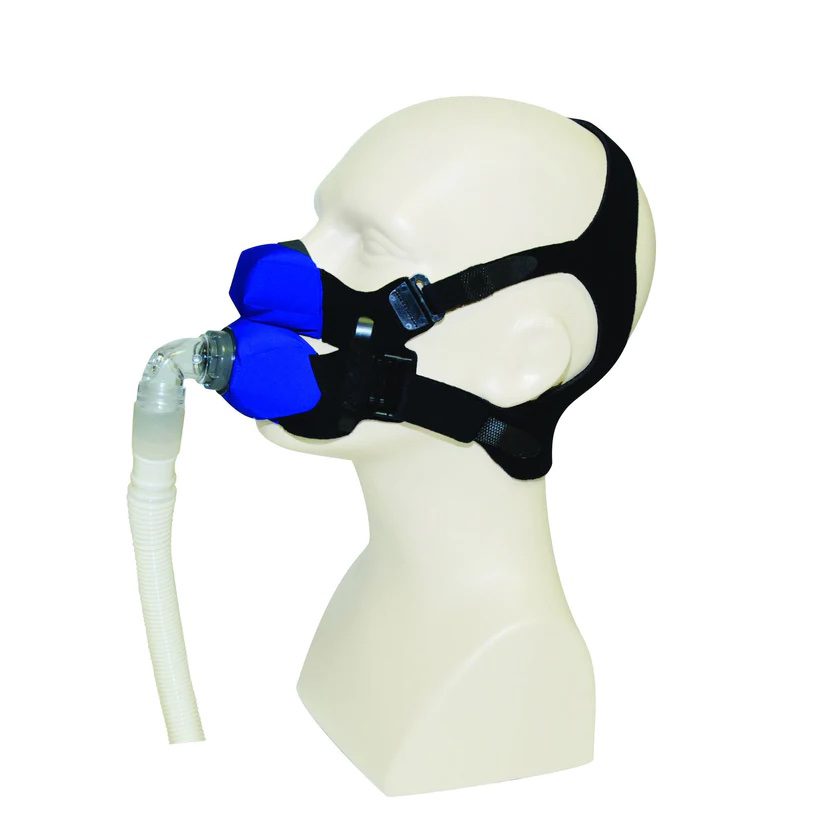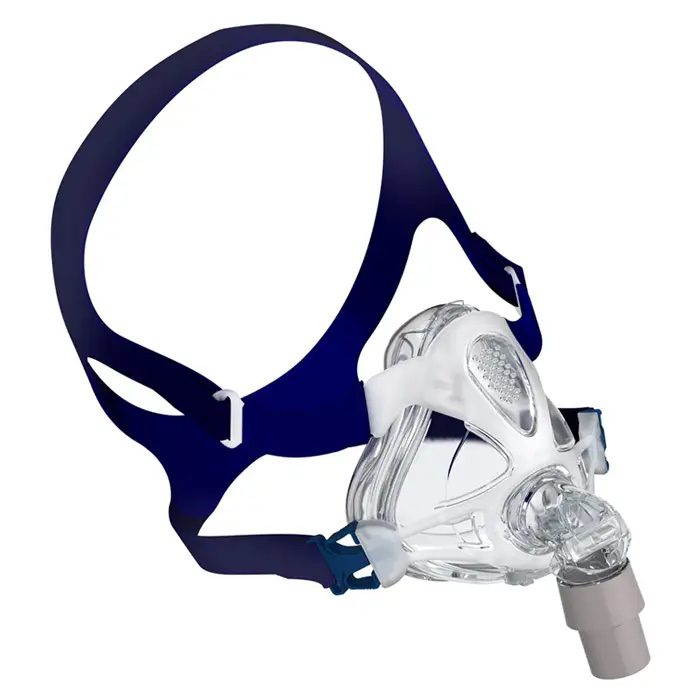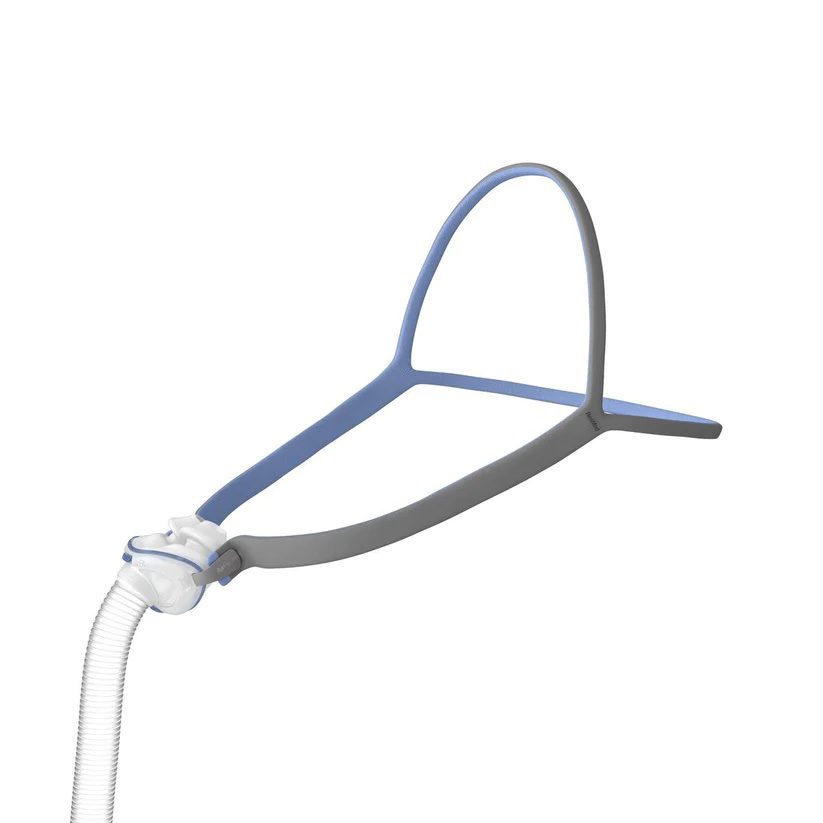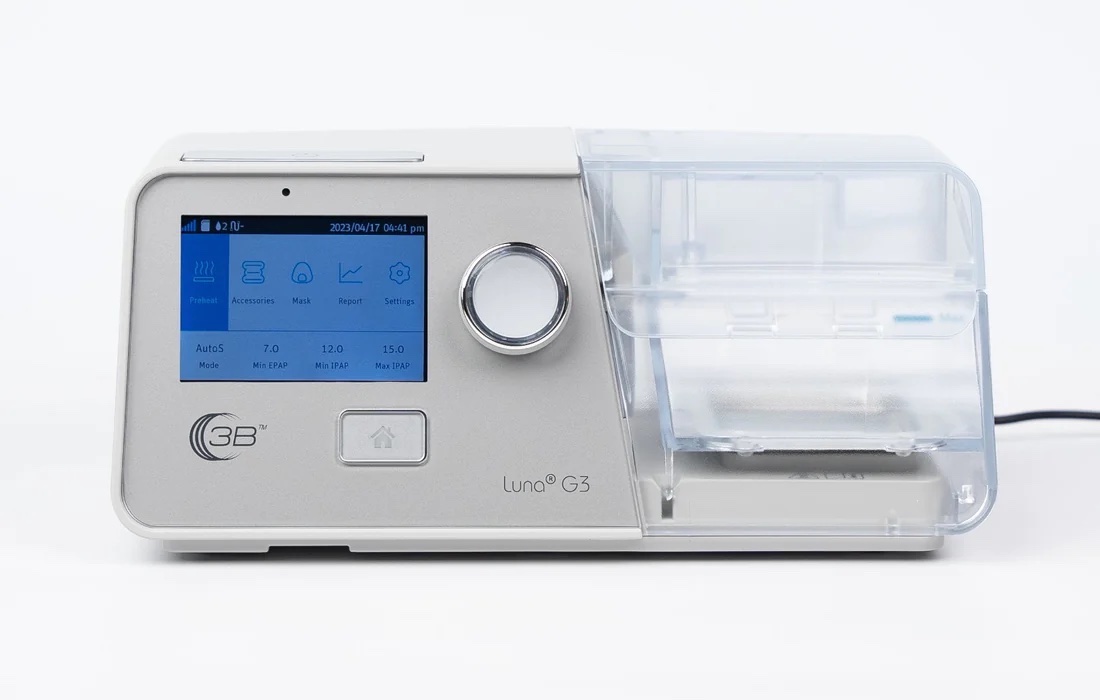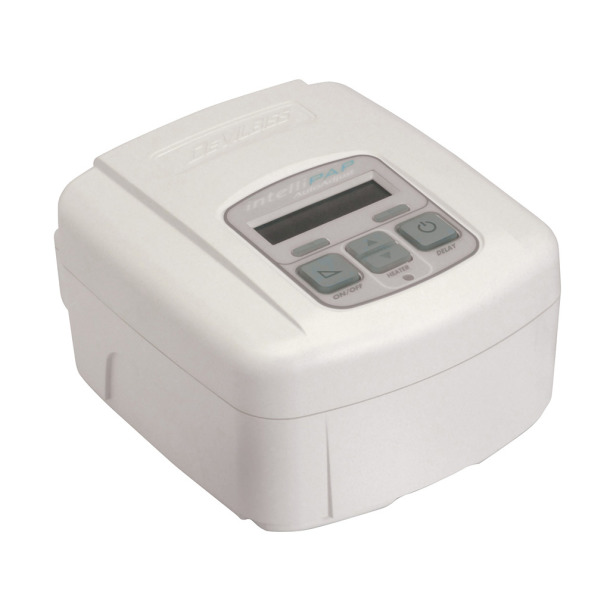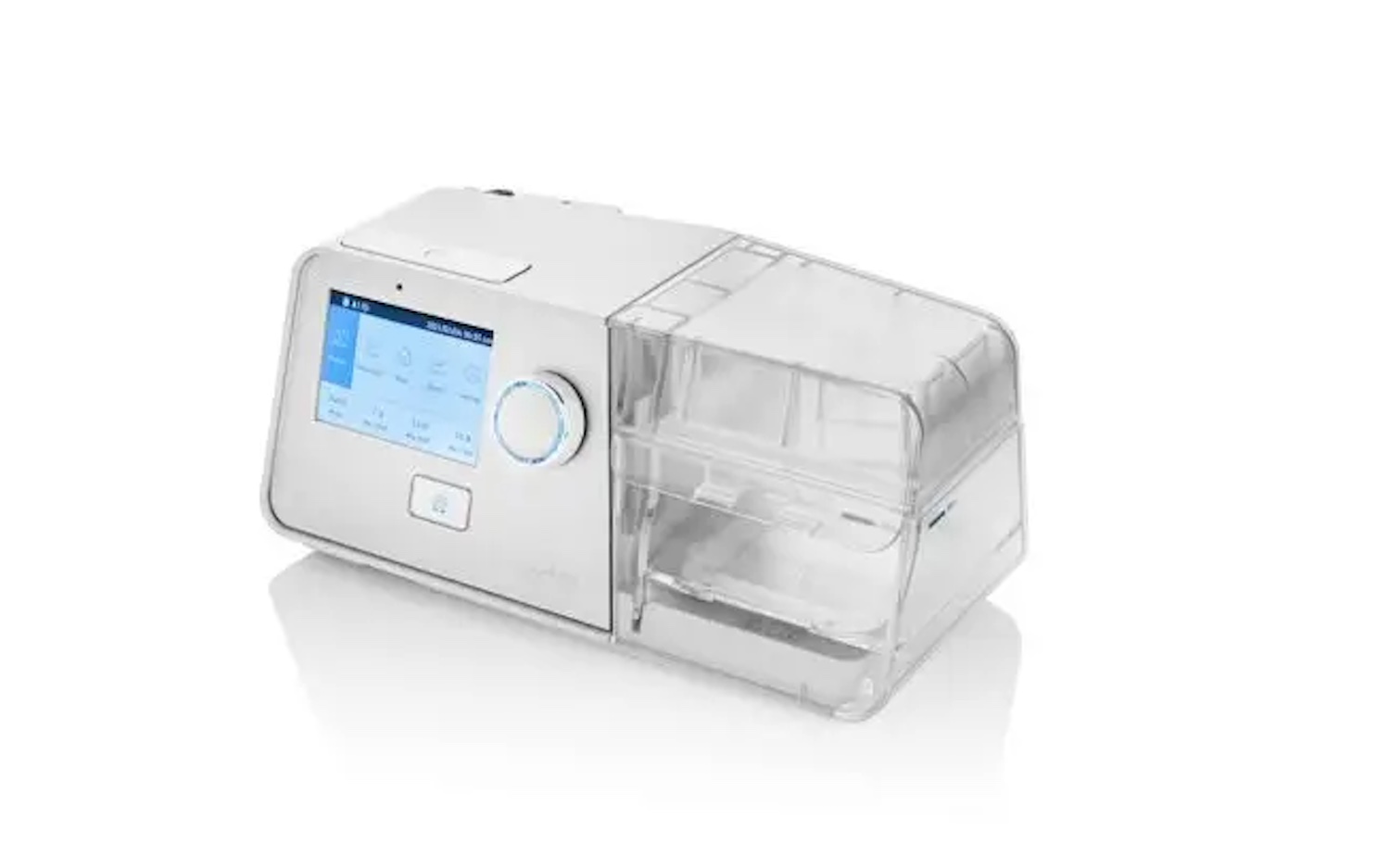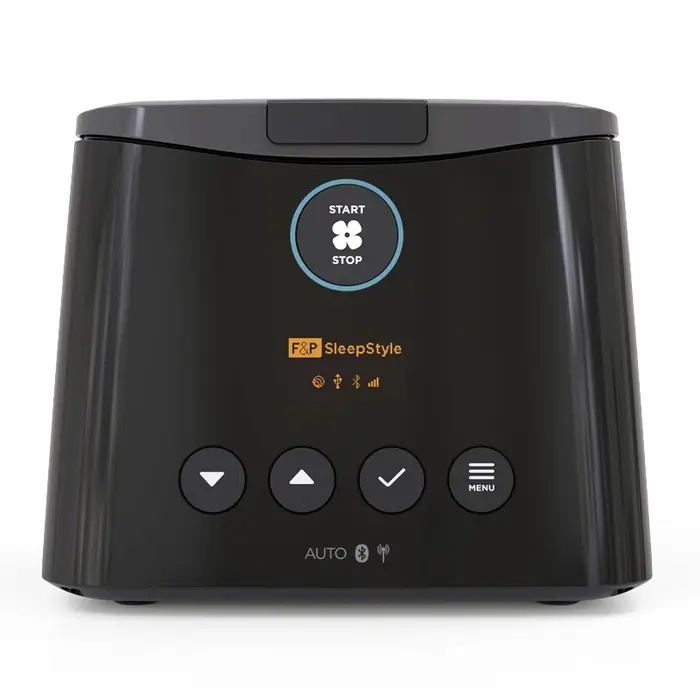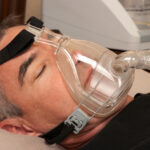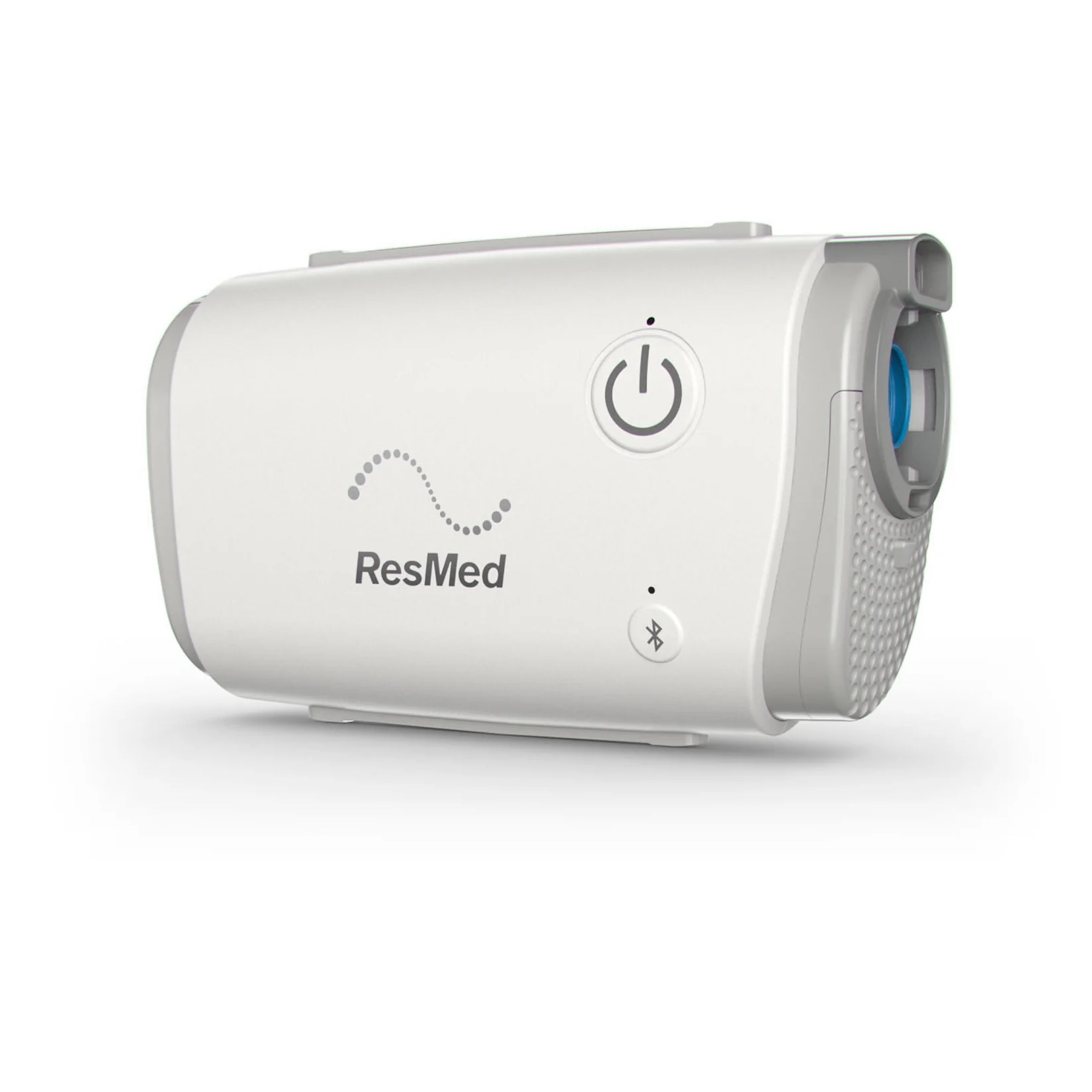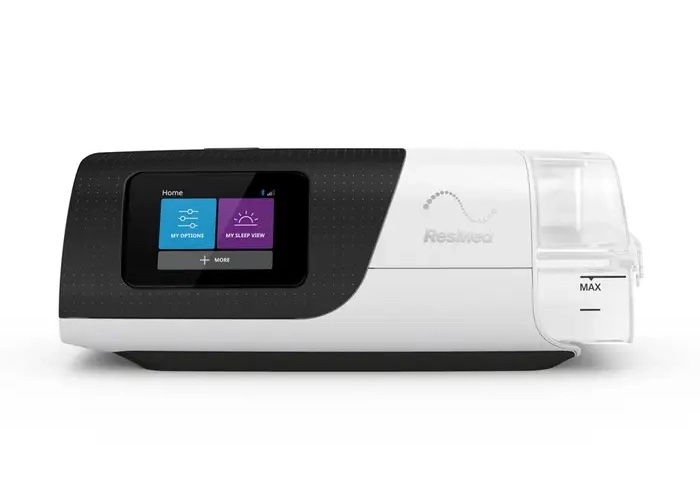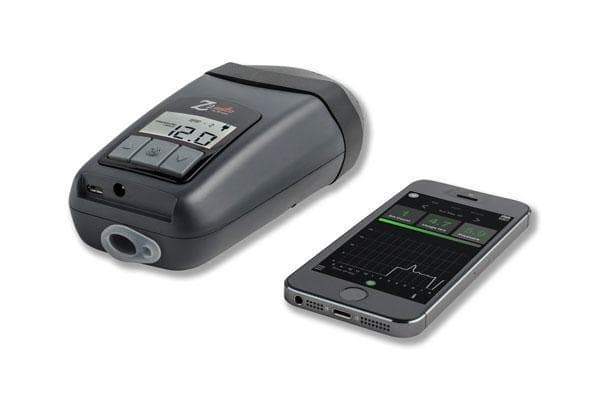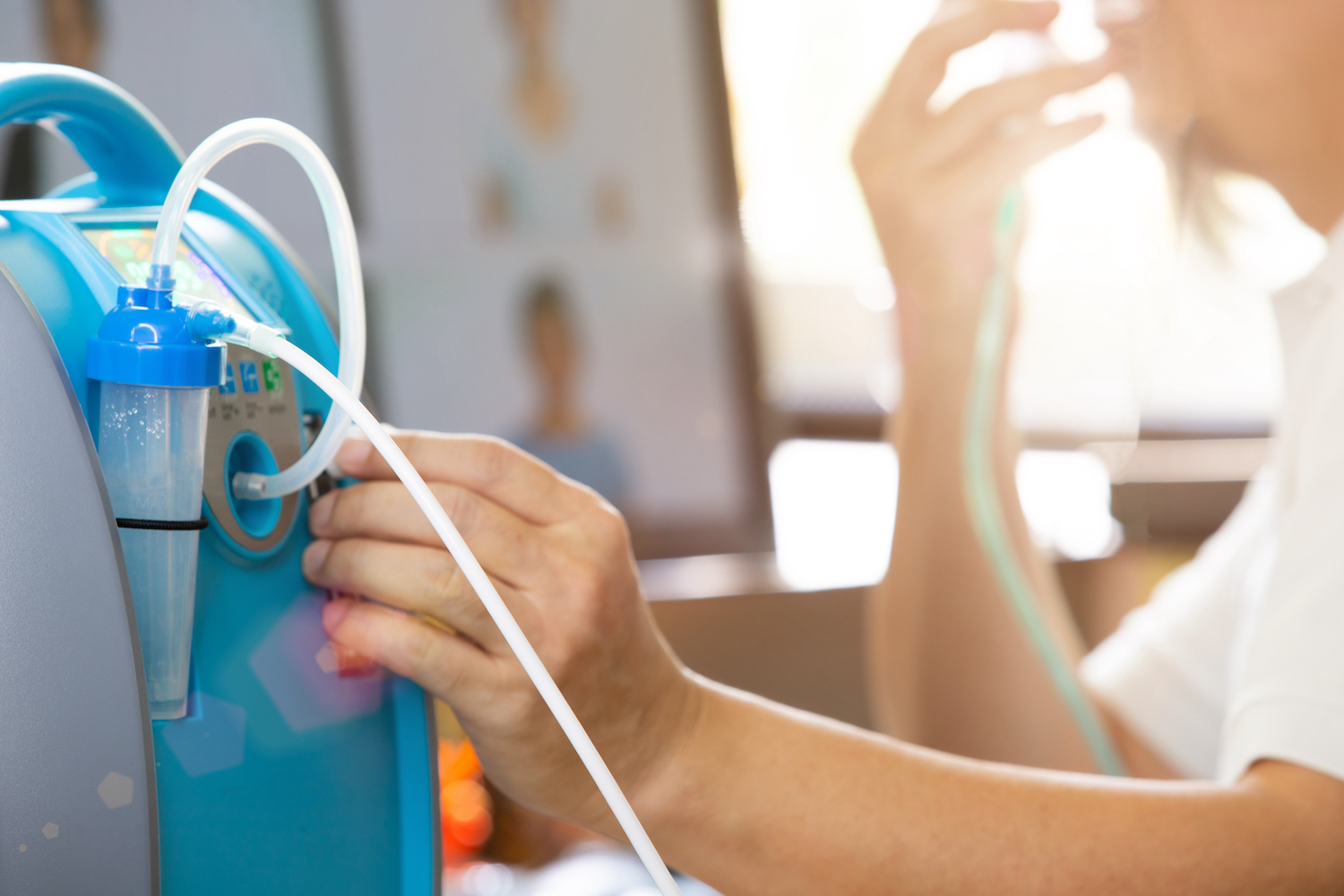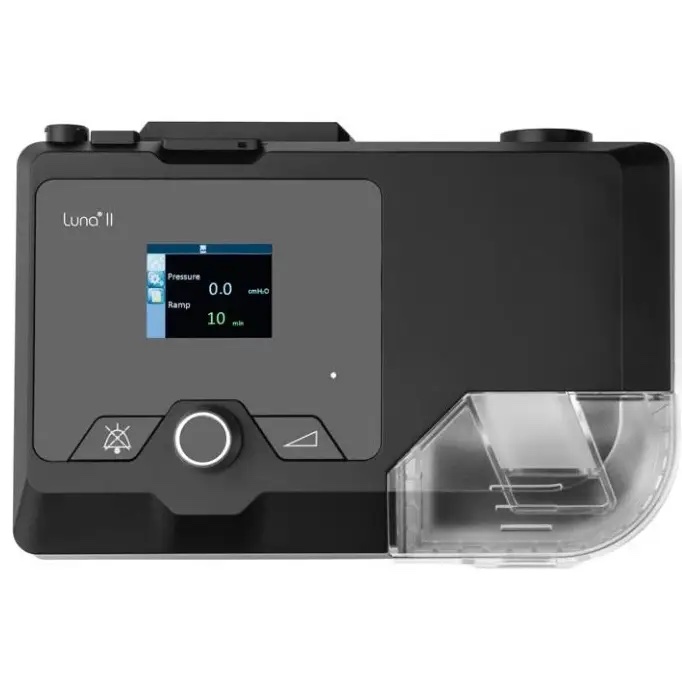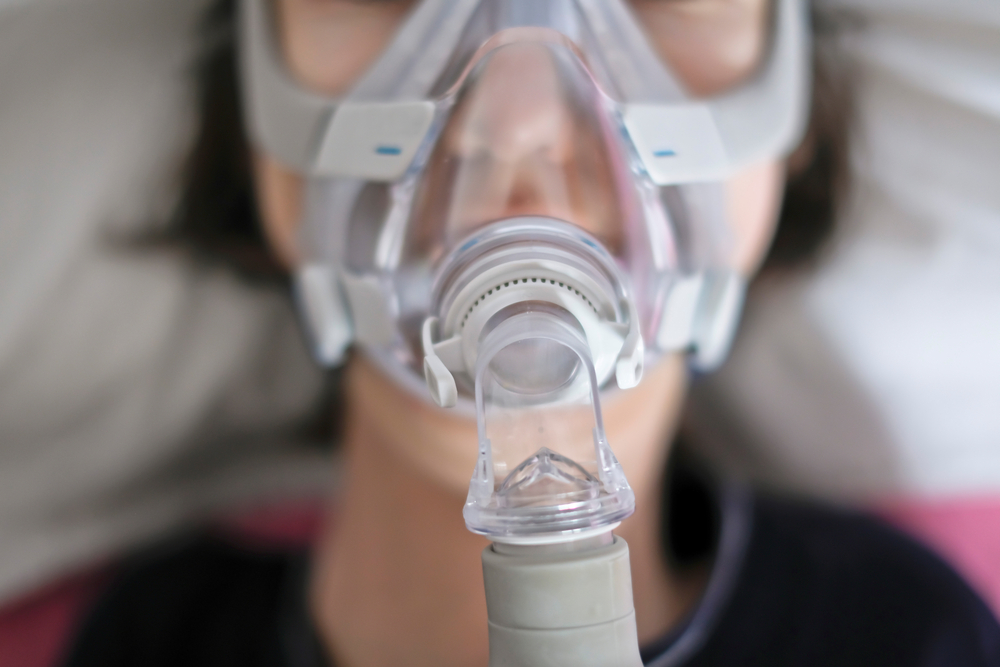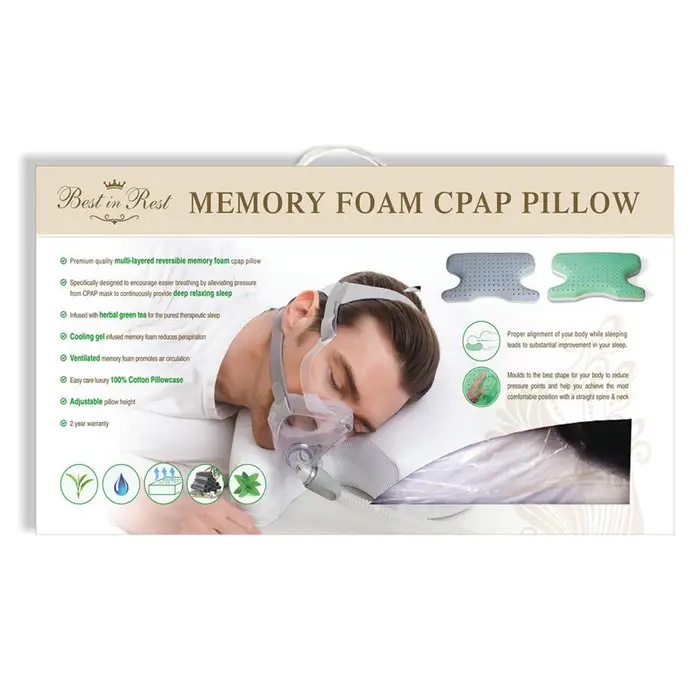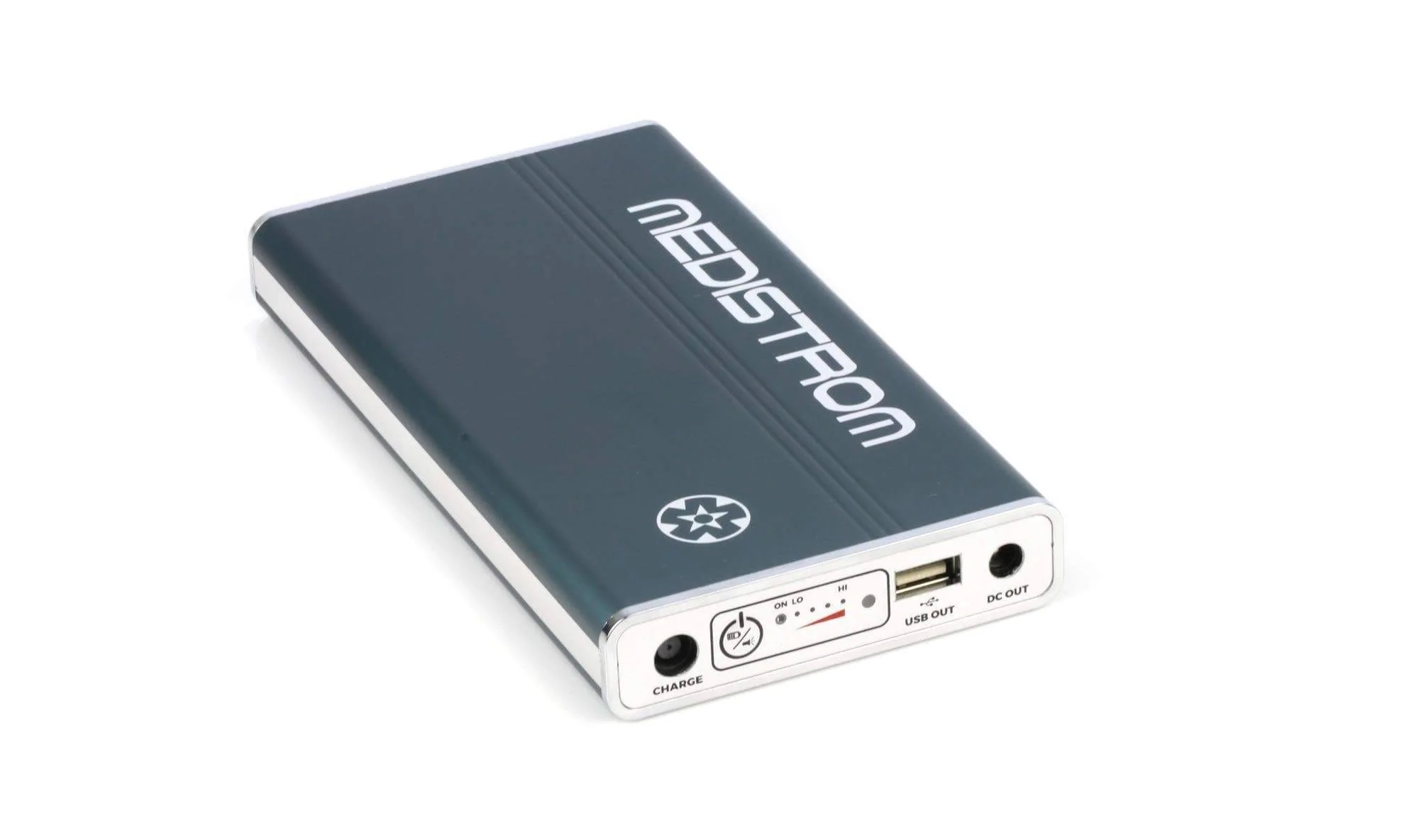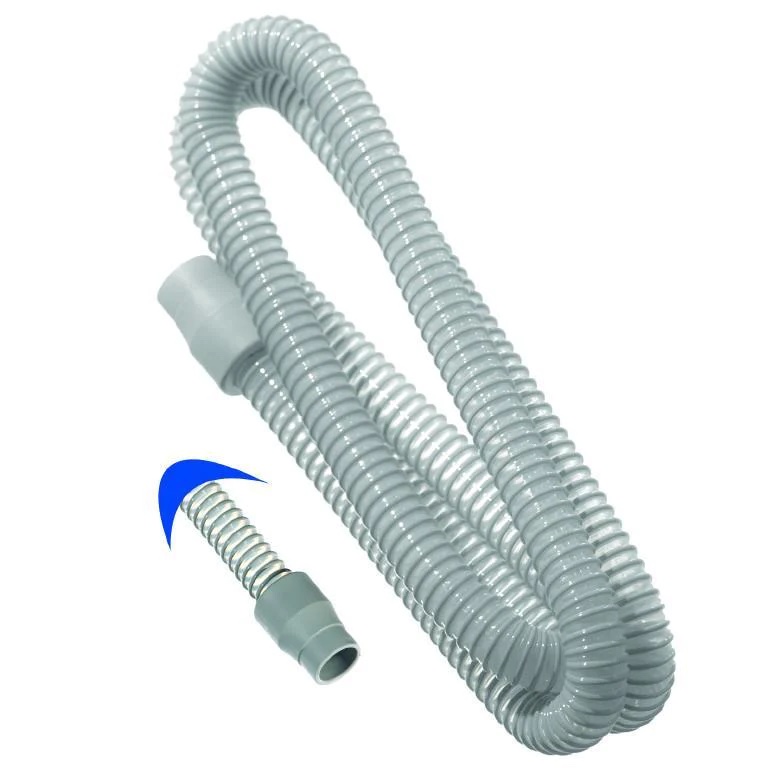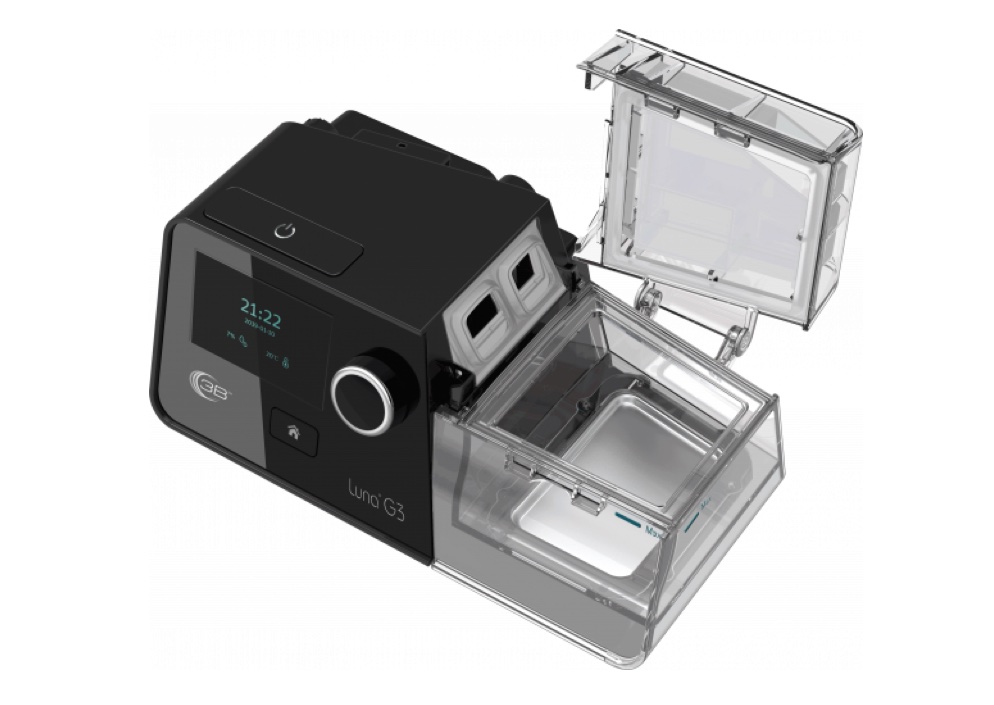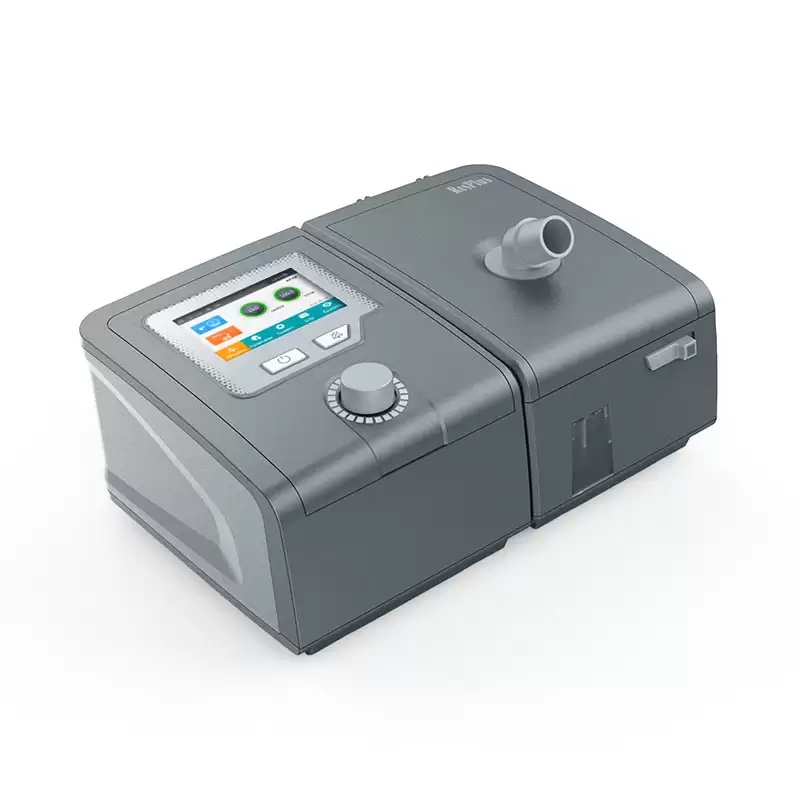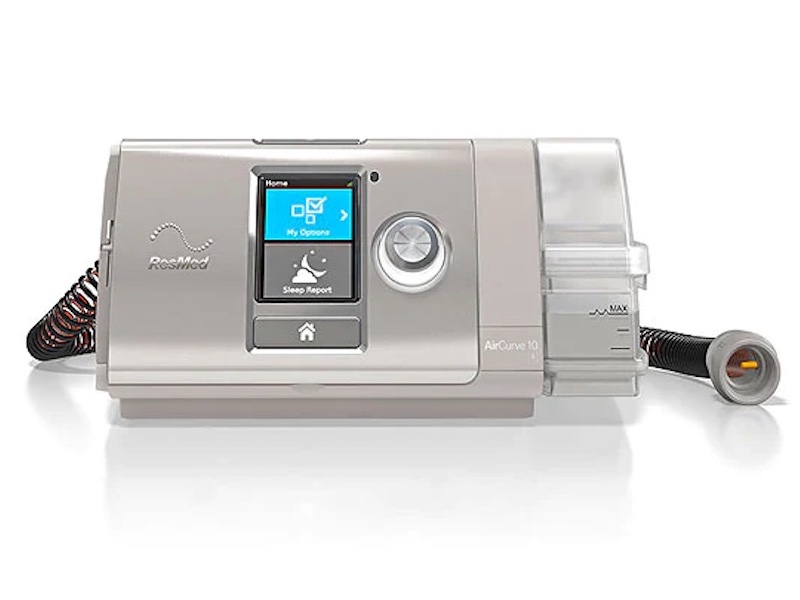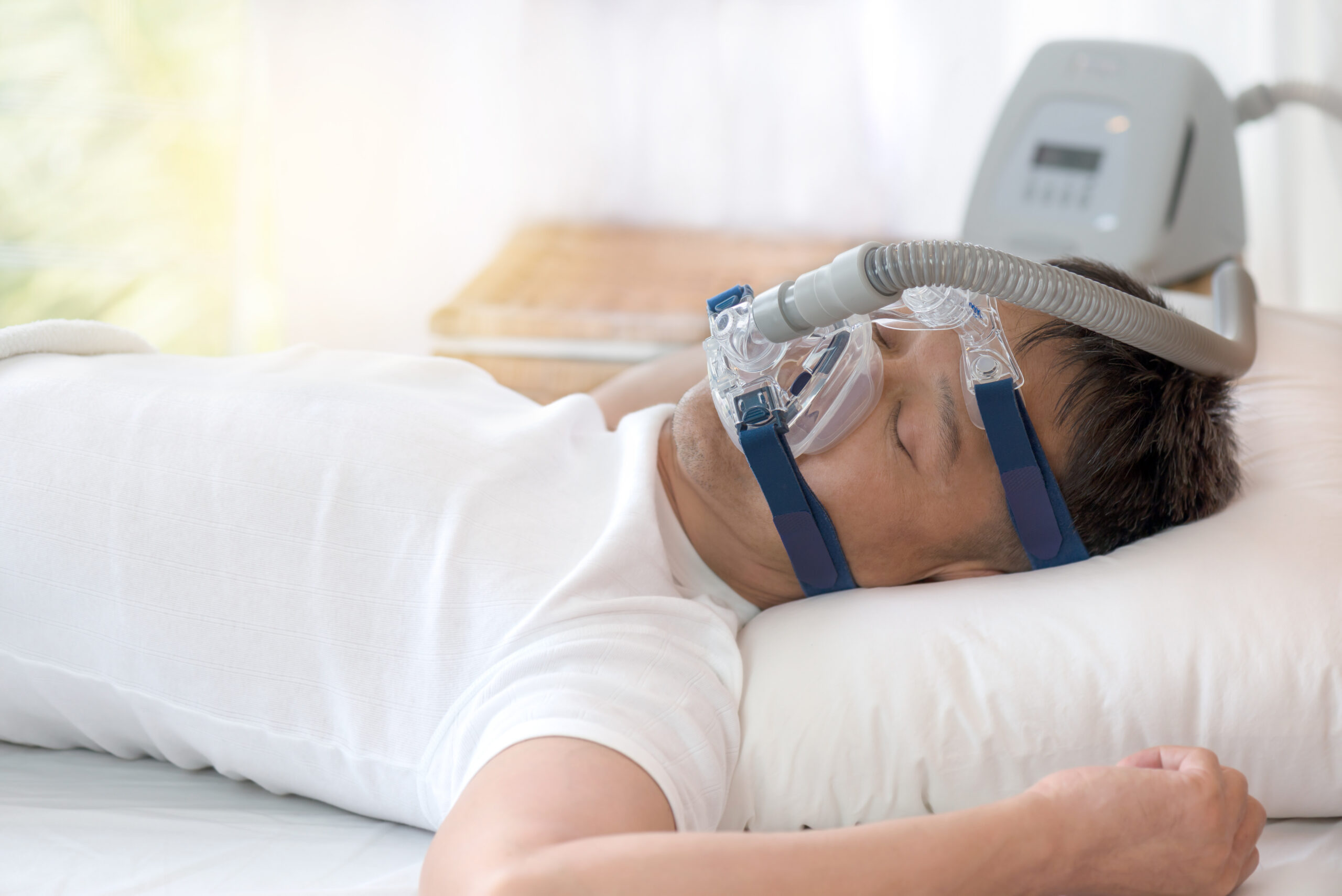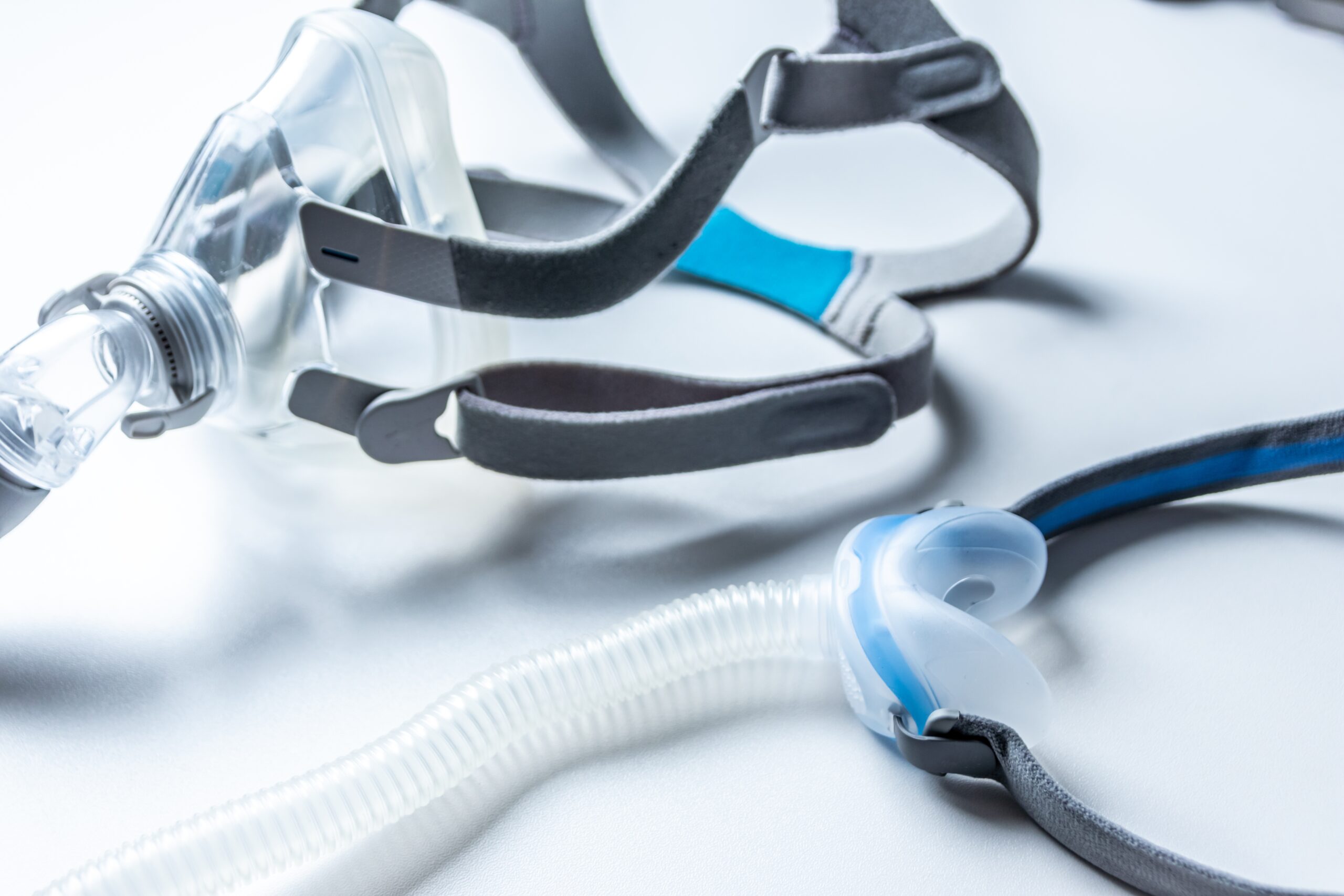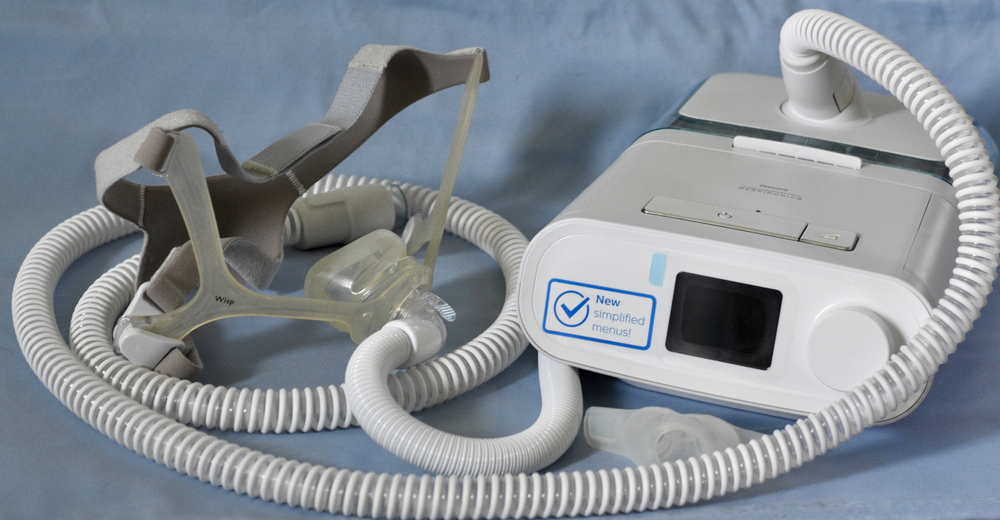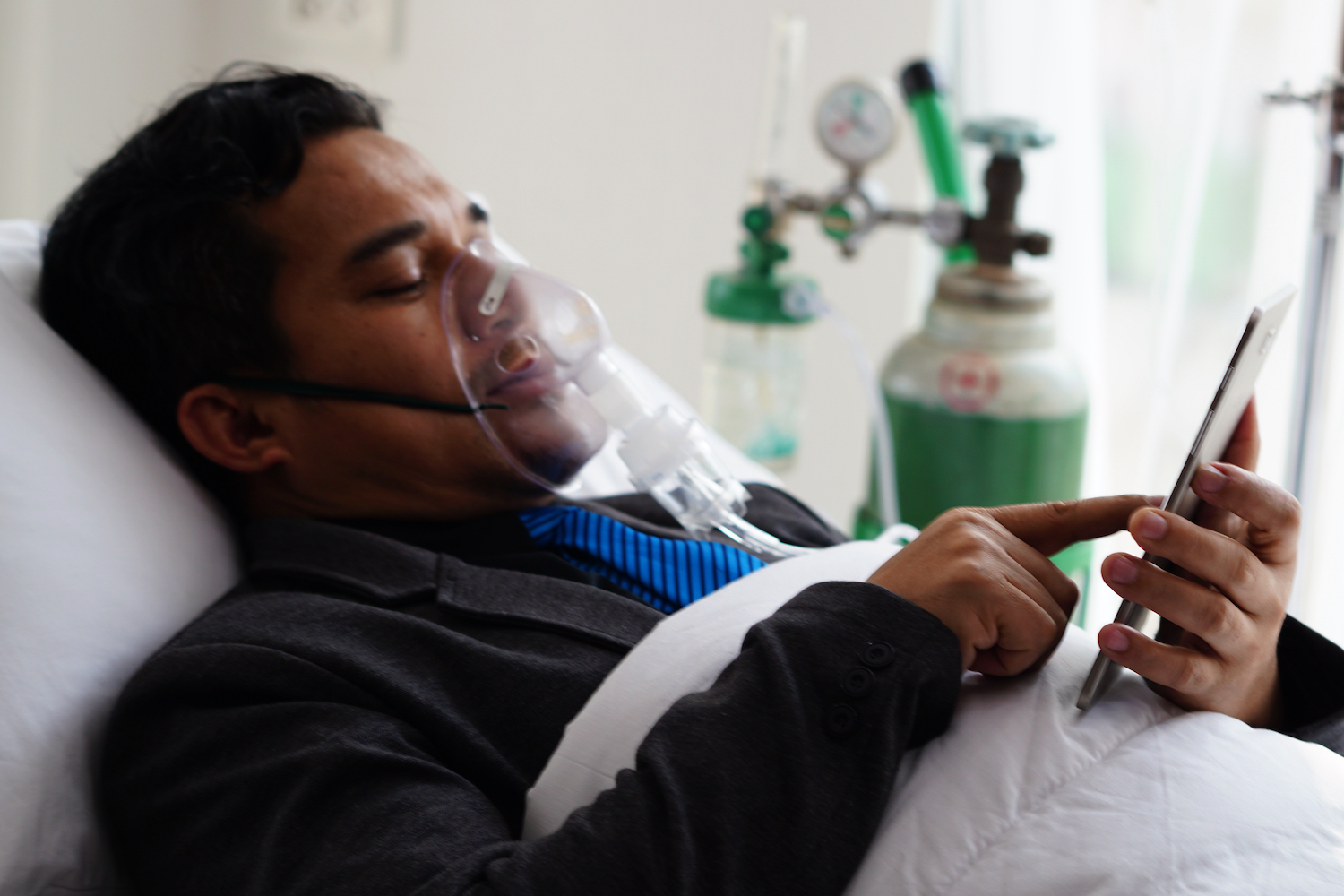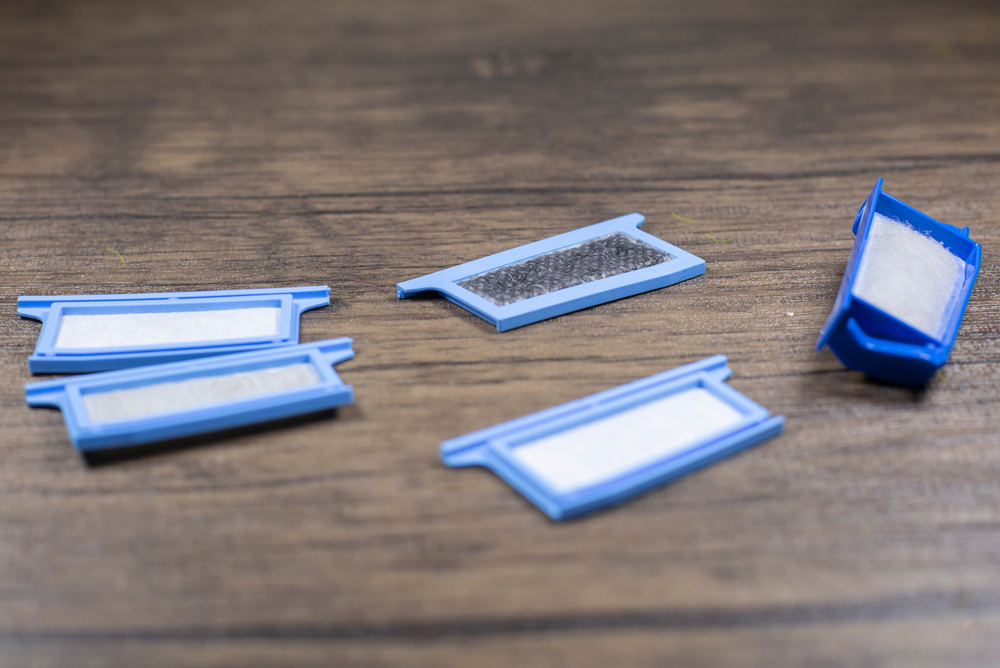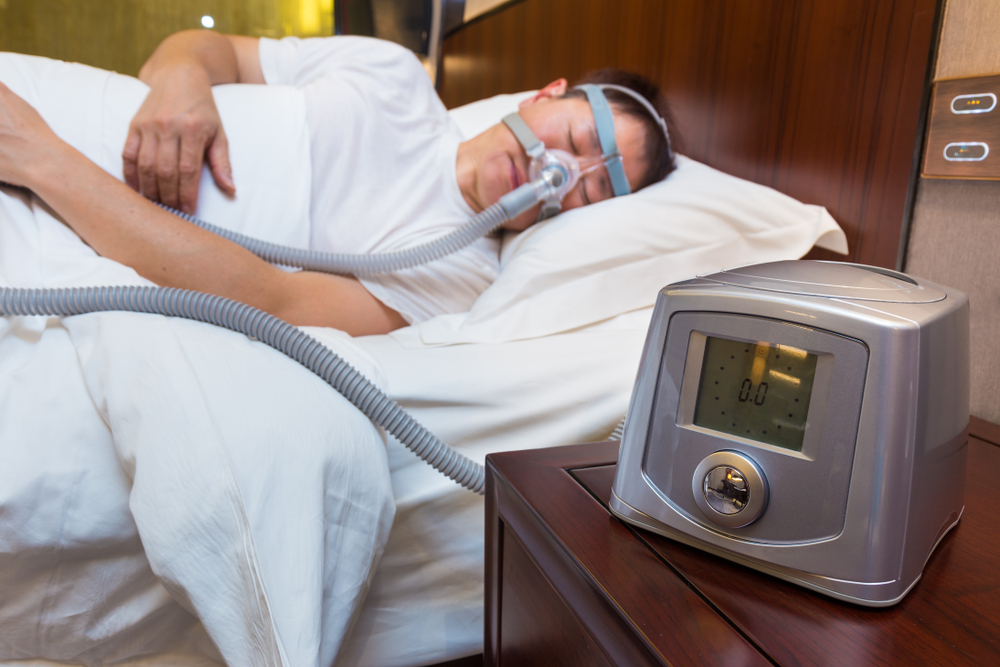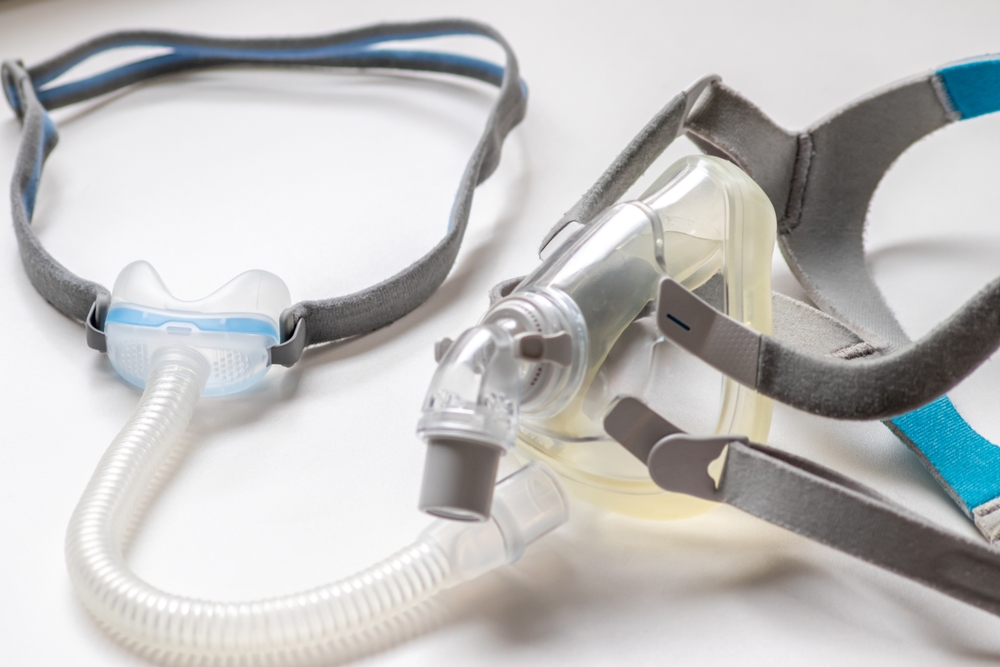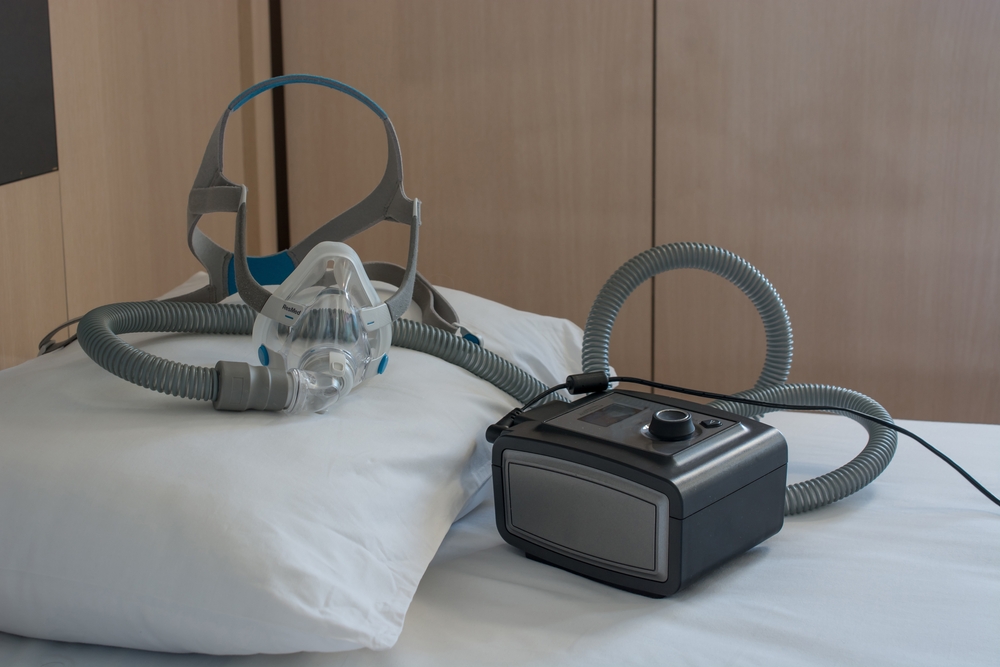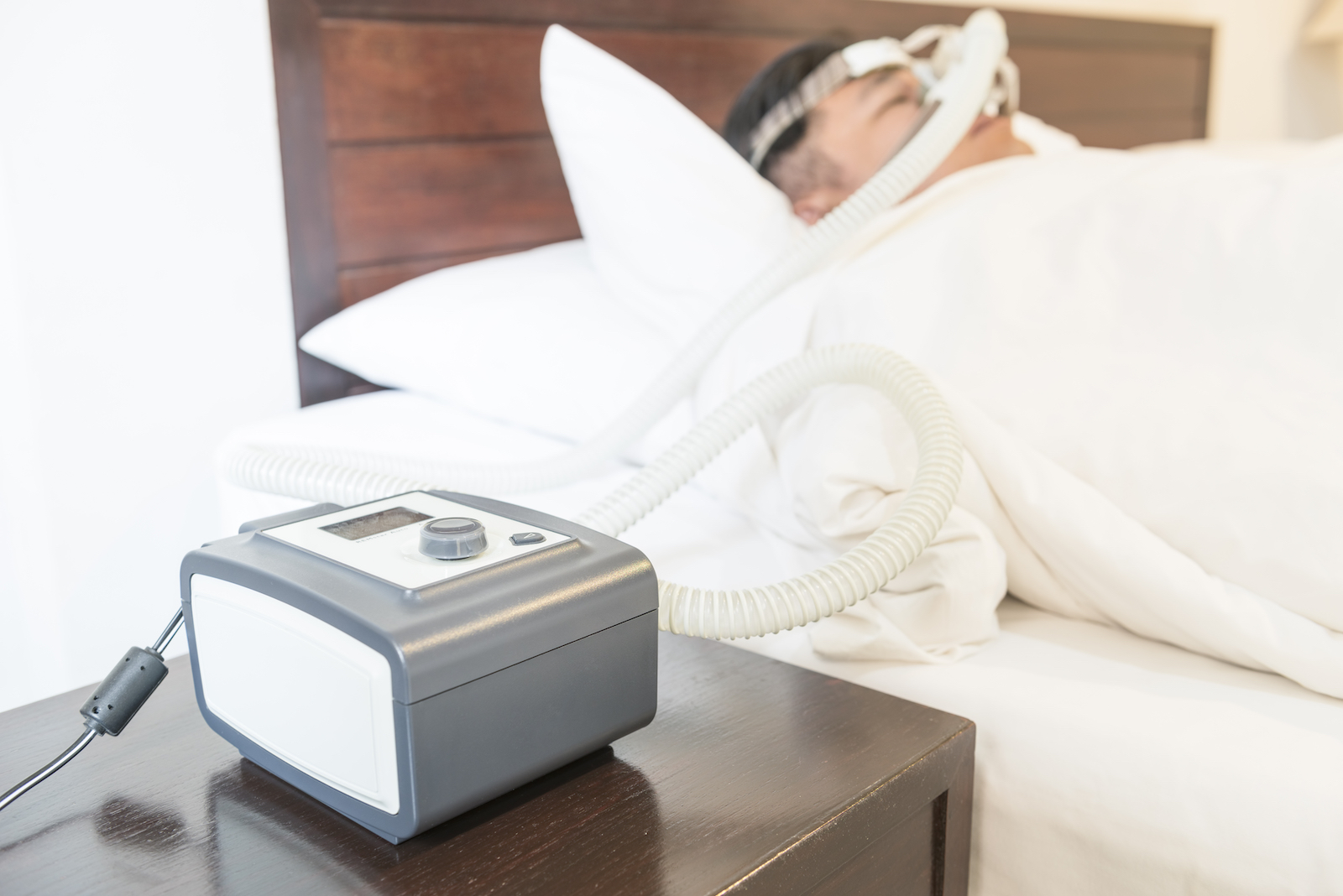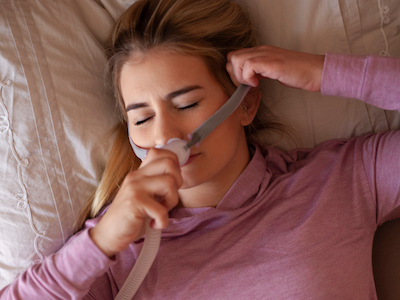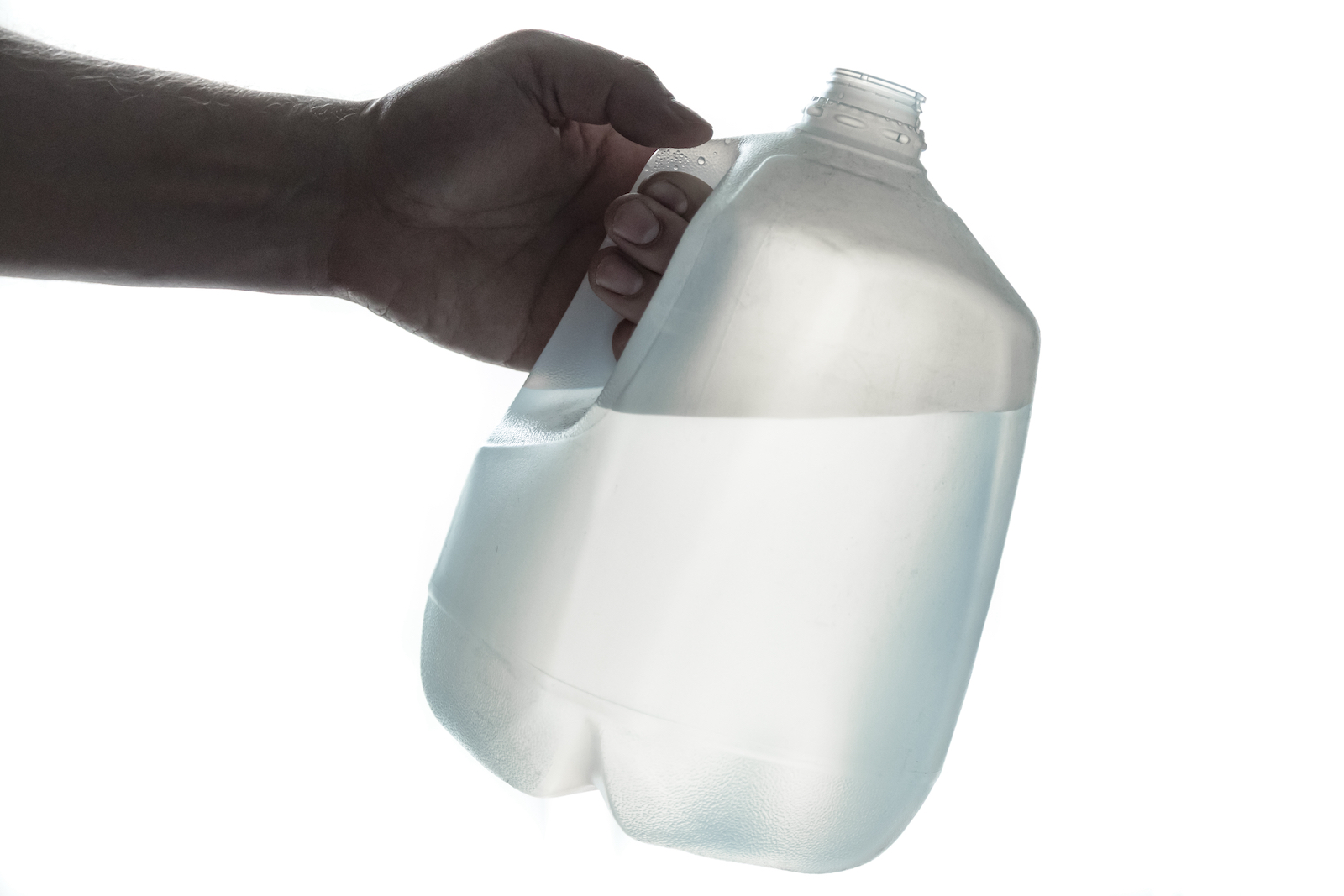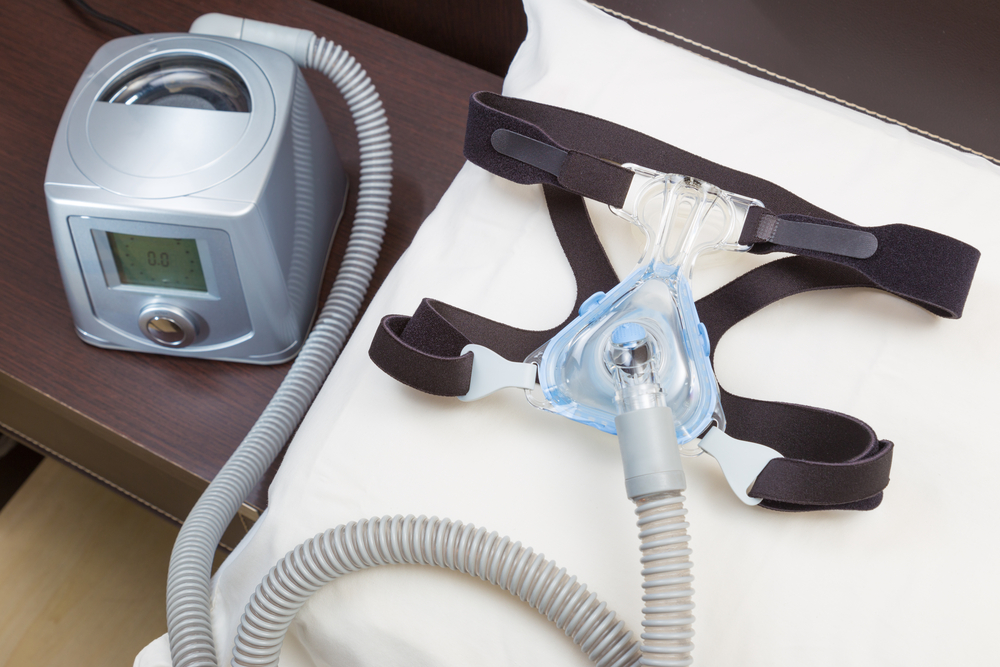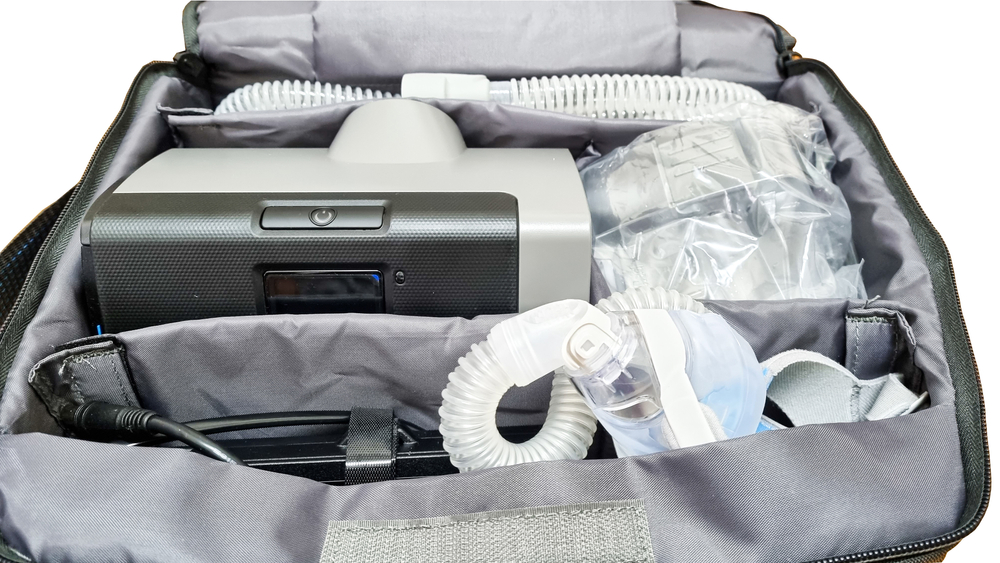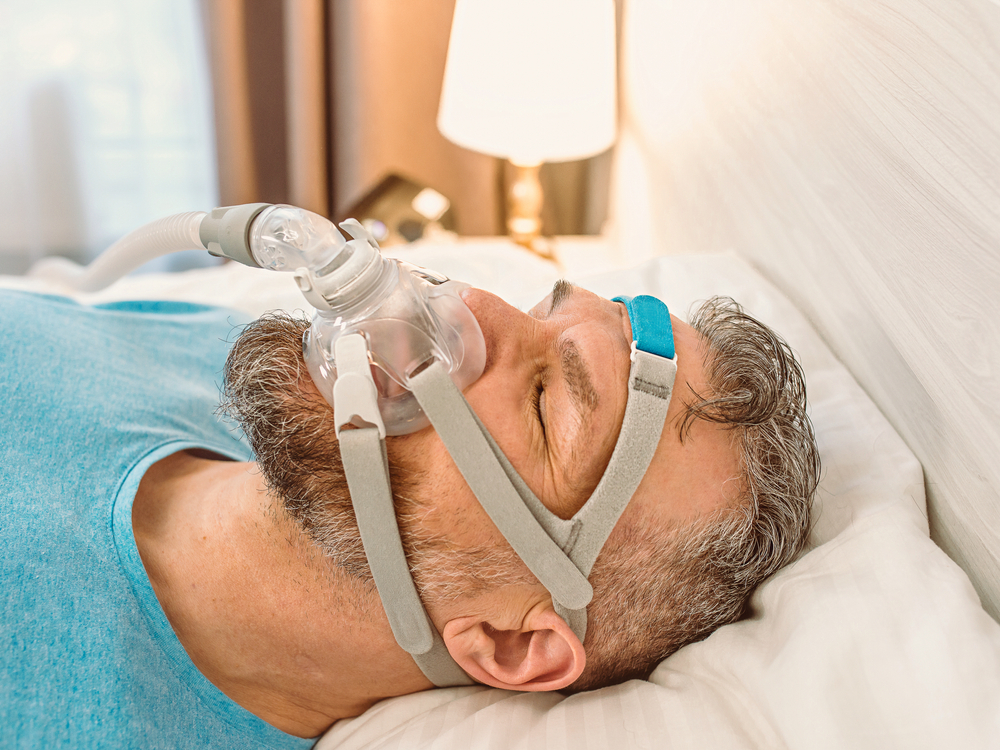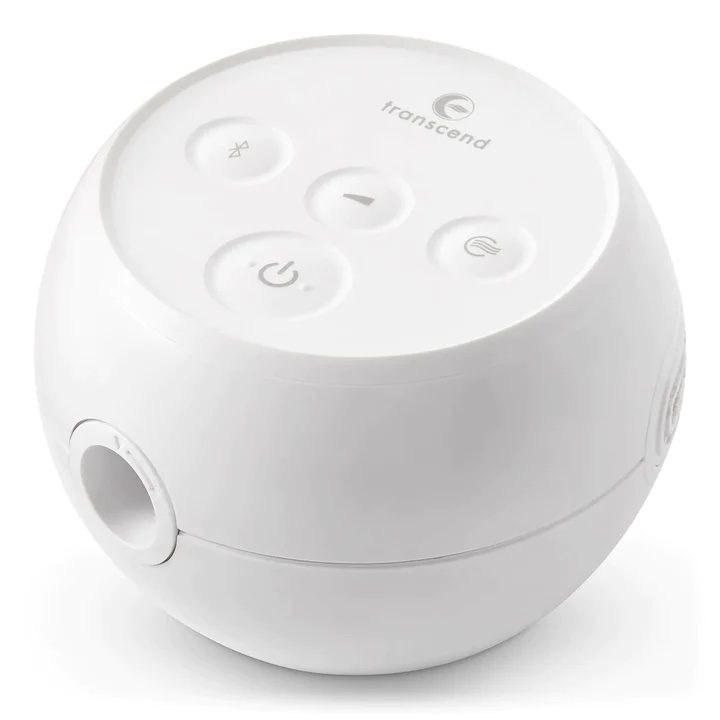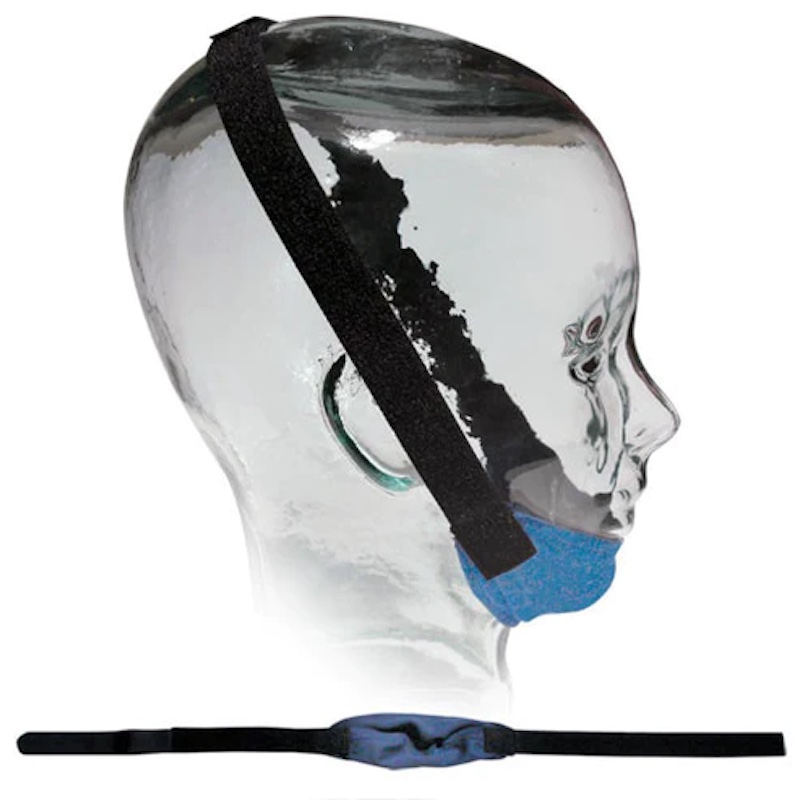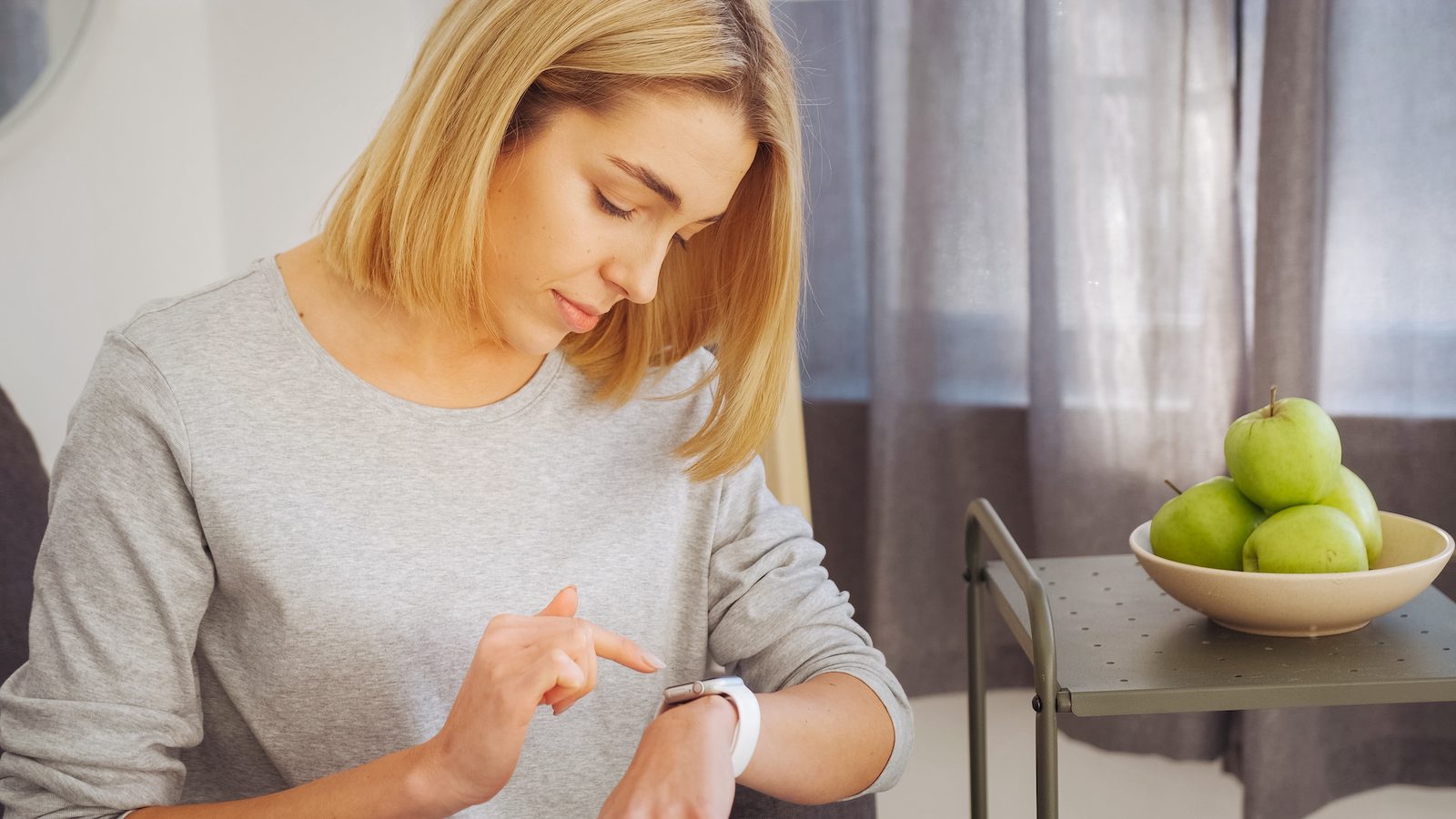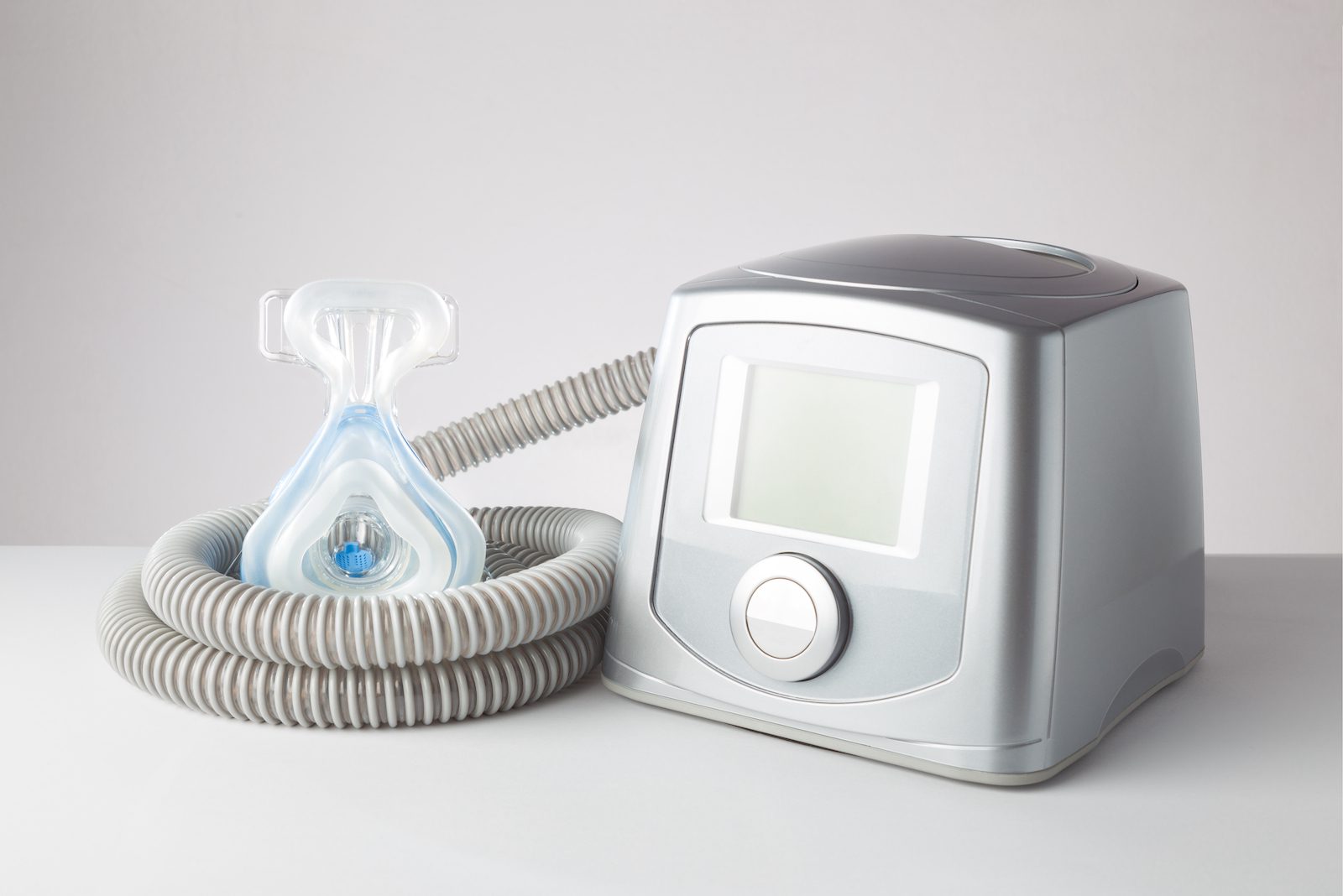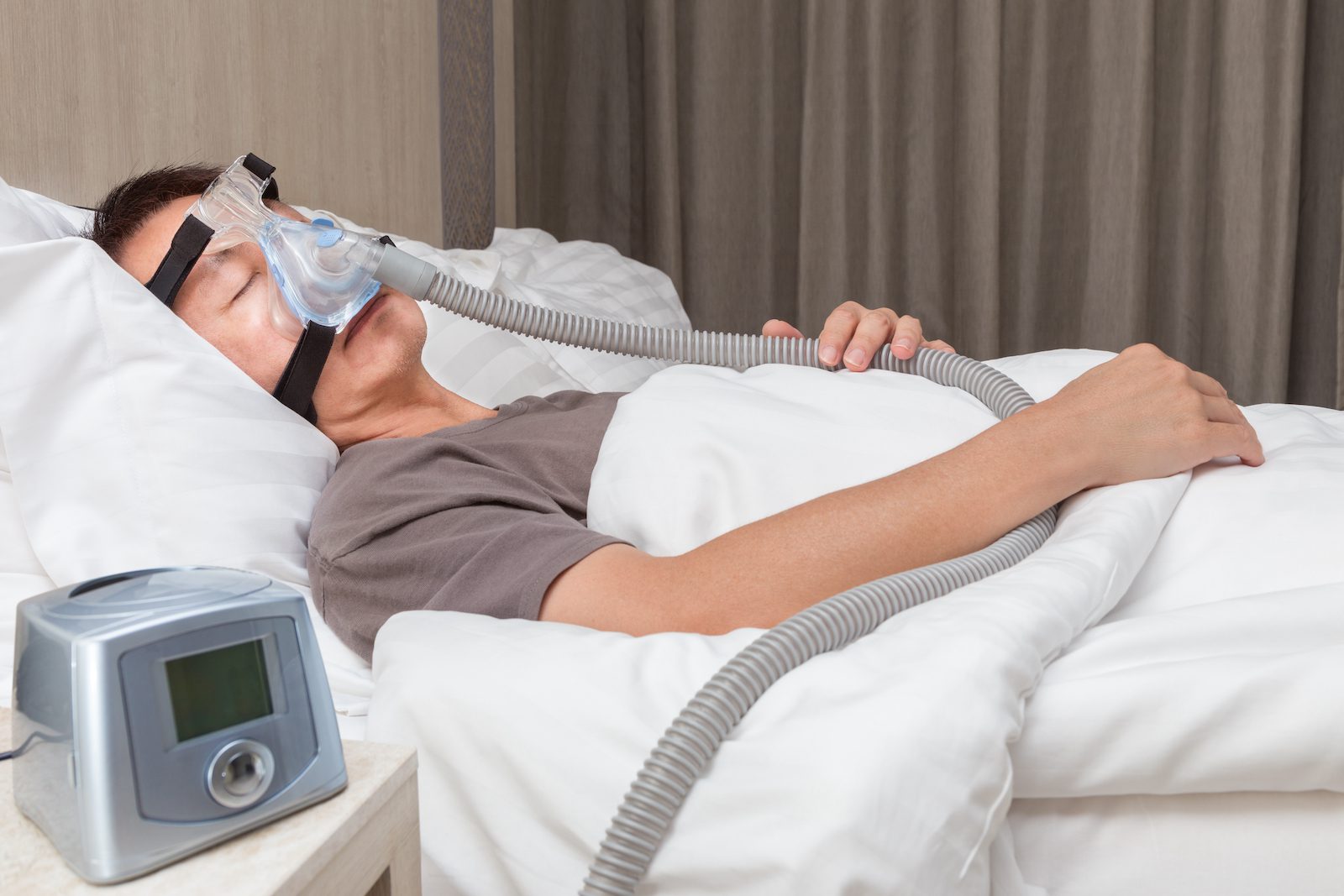Continuous positive airway pressure (CPAP) therapy is the leading treatment for obstructive sleep apnea (OSA), but many people find their CPAP masks uncomfortable. CPAP mask liners are a popular solution to this problem. They consist of soft fabric that reduces skin irritation and wicks away moisture while preventing leaks and protecting the mask.
CPAP mask liners are a straightforward product. However, like all CPAP accessories, there is room for confusion if you’ve never used one before. We’ll introduce you to our picks for the top CPAP mask liners, then walk you through what you need to know before buying or using a CPAP liner.
Best Overall
Snugz Mask Liner
Ideal For
- People who sleep hot
- CPAP users with a high-pressure setting
- First-time CPAP mask liner users
Highlights
- People who prefer smooth fabric liners
- Sleepers concerned about air leakage
- Customers on a budget
-
Price
$30
-
Material
Blend of spandex, polyester, and lycra fibers
While air leakage from a CPAP mask is usually something to be avoided, the Snugz Mask Liner uses a small amount of leakage to improve the experience of using a CPAP machine.
The Snugz consists of a stretchy, knit blend of spandex, polyester, and lycra fibers. These fibers wick away moisture and are gentle on the skin. However, the design also allows a tiny amount of air to leak out of and into the mask itself. This airflow reduces moisture and lowers the temperature inside the mask, allowing for a cooler and more comfortable rest.
The Snugz Mask Liner is available for nasal and full-face masks. Since the liner is stretchy, it is easy to use and fits most mask sizes comfortably. Customers should double-check that it works for their mask before purchasing.
Due to the design, the Snugz Mask Liner does not last as long as some washable CPAP mask liners. Each box comes with two mask liners, which can last up to 90 days. The Snugz also has an above-average price-point, though customers may find the cost a worthwhile trade-off for the liner’s advanced features.
Use this SleepApnea.org link for the most current discount on Snugz products
Shop NowBest for Single Use
RemZzzs Padded CPAP Mask Liners
Ideal For
- People who use facial care products at night
- CPAP users who cannot wash their liner regularly
- Customers who prefer natural fibers
Highlights
- Customers interested in a reusable mask liner
- Shoppers on a tight budget
- People who prefer more substantial fabric
-
Price
$27
-
Material
100% Cotton
RemZzzs Padded CPAP Mask Liners are disposable and consist of 100% cotton, making them an appealing choice for people concerned that their facial care products may damage their mask or reusable mask liner. Disposable liners are also popular with travelers, those who find it difficult to wash a reusable liner, and anyone in need of a backup option.
Despite being single use, the RemZzzs Padded CPAP Mask Liners have a simple but effective design. Cotton is one of the best materials for breathability and moisture absorption, and the liner’s notable padding provides enough protection for sensitive skin.
RemZzzs Padded CPAP Mask Liners are available in small, medium, and large sizes for both nasal and full-face masks. There are also options designed for different sizes of several brand name nasal and full-face masks.
Most people should find that the cotton’s breathability keeps their mask cool and comfortable. However, some sleepers find the liners difficult to keep in place.
Disposable liners, like the RemZzzs Padded CPAP Mask Liners, are typically more expensive than reusable varieties. However, the price of RemZzzs liners is comparable with other disposable options.
Use this SleepApnea.org link for the most current discount on RemZzzs products
Shop NowBest Ease of Use
Silent Night Minimal Contact CPAP Mask Liners
Ideal For
- Those who use minimal contact CPAP masks
- People who frequently sweat under their masks
- Shoppers who prefer softer liners
Highlights
- People looking for a liner with more padding
- Those searching for liners made from natural materials
- Shoppers on a budget
-
Price
$24.95
-
Material
Microfiber
-
Size
One Size Fits Most
-
Type
Full-Face
Silent Night offers four different types of CPAP mask liners to fit different models. The Minimal Contact CPAP Mask Liners are specifically designed for people who use minimal contact CPAP masks, such as the ResMed AirFit F30i. The liners attach easily to your mask using included stick tabs that allow you to customize the fit.
The liner is made with Micro Pillow fabric that is meant to be exceptionally soft, while helping absorb moisture and facial oils. This makes the liners a great fit for those who often experience irritation from their masks, as well as those who tend to sweat at night. Thanks to the custom, stick tab fitting, the liner also shouldn’t obstruct your sight when watching TV or reading at night.
Each pack comes with four liners that can be used for 6 to 8 days each. The company also has a separate line of machine-washable liners if you prefer to use liners for a longer period of time.
The Silent Night Minimal Contact CPAP Mask Liners are one size fits most, and they come at an average price-point compared to other disposable liners.
Use this SleepApnea.org link for the most current discount on Silent Night products
Shop NowWhy We Picked These
We choose our featured products — including CPAP mask liners — based on in-depth research of their performance, construction, durability, and customer satisfaction. Our team has many years of combined experience with CPAP products, and we use our expertise to provide readers with the insight they need to navigate the CPAP accessories market.
What Is a CPAP Mask Liner?
CPAP mask liners are fabric sheaths that provide a barrier between the CPAP mask cushion and the user’s skin. Most are marketed as preventing air leaks, protecting skin from red marks or irritation, and shielding the mask from body oils. Many CPAP mask liners also wick away moisture to reduce the temperature and humidity inside the mask.
The design of a CPAP mask liner varies depending on the manufacturer and the mask compatibility.
Will a CPAP Mask Liner Help Prevent Air Leaks?
CPAP mask liners can help prevent air leaks by filling in the spaces where a user’s skin might pull away from the mask or wrinkle. Additionally, facial moisture can cause masks to slip, creating air leaks. Liners frequently combat this problem by absorbing sweat and oils.
In addition to using a mask liner, other ways to prevent air leaks include:
- Cleaning mask components regularly
- Replacing mask components according to the manufacturer’s directions
- Ensuring you use the right mask size and style
- Using a CPAP pillow to reduce pressure on the mask
What You Should Consider When Choosing a CPAP Mask Liner
Like choosing a CPAP mask, choosing a CPAP mask liner can be more complex than it first appears. There are several factors to consider before making a purchase. Understanding each of these considerations can limit confusion and make the process easier.
CPAP Mask Liner Considerations
| Price | Most CPAP mask liners cost less than $30. More advanced features may come with a higher price tag. Reusable mask liners are more cost-effective than disposable options, but customers looking for value should also consider the expected lifespan of any reusable option. |
| Compatibility | Some CPAP mask liners are compatible with a wide variety of masks, while others are designed for a single brand name mask. Choosing a compatible liner helps ensure that it fits on the mask and that the cutouts line up with your mouth and nose. You can usually find compatibility information on the manufacturer’s website or through an online CPAP retailer. |
| Moisture Wicking | CPAP masks can be humid, so many mask liners are intended to wick away excess moisture for a more comfortable experience. Cotton and microfiber are among the most absorbent liner fabrics, though some manufacturers use fabric blends designed to address the problem. |
| Comfort | All CPAP mask liners are intended to be comfortable, but comfort is subjective. You can find thick and fuzzy options or smooth and streamlined designs, so consider what might feel best to you. |
| Quality Materials | A well-made CPAP mask liner can last longer, so it’s worth balancing the quality of the materials against the mask liner’s cost. While a less expensive option may seem like a good deal, the yearly cost may be greater if you need to replace it more often. |
| Cleaning and Care | All reusable CPAP mask liners should be cleaned routinely or replaced as directed by the manufacturer. Daily cleaning is usually best, but weekly cleaning is acceptable. Some mask liners are machine-washable, while others must be washed by hand. |
Reusable vs. Disposable CPAP Mask Liners
Disposable CPAP mask liners are intended to be used once before being thrown out, while reusable mask liners usually have a lifespan of three to six months. Reusable designs must be washed regularly. However, avoid reusing disposable mask liners since they cannot be cleaned effectively and may degrade.
Both options have pros and cons. Some people prefer one or the other, while others use either as needed.
| Reusable Mask Liners | Disposable Mask Liners |
|---|---|
Benefits:
| Benefits:
|
You Shouldn’t Use One If:
| You Shouldn’t Use One If:
|
Where Can You Buy a CPAP Mask Liner?
CPAP mask liners are available from brick-and-mortar stores, online CPAP retailers, and some sleep specialists.
Brick-and-mortar CPAP stores tend to have higher prices and smaller selections of mask liners than online retailers. On the other hand, choosing a mask liner in person allows you to ask questions and potentially take a closer look at the liner itself.
Sleep specialists usually have the highest prices and smallest selections, though buying from your specialist allows easy integration with your care.
Do You Need a Prescription for CPAP Accessories?
While you must have a prescription to purchase a CPAP machine or CPAP mask, mask components and accessories are available without a prescription. Because of this, CPAP users can purchase mask liners from some online retailers that do not sell CPAP machines or masks, such as Amazon.
Will Health Insurance or Medicare Cover the Cost of Your CPAP Accessories?
While Medicare and some health insurance providers may cover CPAP machines and certain accessories, CPAP mask liners are not considered durable medical equipment and are therefore not usually covered.
However, you may want to review your policy and double-check with your insurance provider if you are uncertain.
CPAP Mask Liners
Disposable CPAP mask liners should be discarded after one use, while reusable mask liners can last anywhere from 1 to 12 months.
A large part of a CPAP mask liner’s lifespan is determined by its design and materials. Knit or stretchy fabric tends to have a shorter lifespan due to its potential for snagging and stretching. More resilient materials, like microfiber, tend to last longer. You can also expect high-quality materials to last longer than alternatives.
Mask liners can help CPAP users protect their skin, prevent air leaks, lower the temperature and humidity inside their masks, and protect their CPAP masks from unnecessary damage.
While some people find their CPAP masks comfortable as-is, others experience red marks or skin irritation. This is particularly common among people with sensitive skin or delicate skin prone to tearing. A CPAP mask liner creates a barrier between the mask cushion and the skin, which can make it more comfortable and less likely to cause irritation.
CPAP mask cushions are meant to prevent leaks by molding against the face, but skin can shift or wrinkle. CPAP mask liners make up for this by filling the gaps.
Sweat can also jeopardize a secure seal, so some mask liners are designed to wick away moisture. Not only can this prevent mask slippage, but it can also help reduce condensation inside the mask.
Finally, mask liners protect the mask and mask cushion from body oils, facial care products, sweat, and other contaminants that could degrade the materials and shorten the mask’s lifespan.
Mask liners are not considered durable medical equipment and are not covered by Medicare.
Medical Disclaimer: This content is for informational purposes and does not constitute medical advice. Please consult a health care provider prior to starting a new treatment or making changes to your treatment plan.
Still have questions?
Sleep apnea products can be confusing. If you need individualized assistance, send us an email at [email protected] with your questions and we'll help find the best fit for you.


